





























































































































Our eyes play tricks on us. So do words.

Allusion invites the reader to see something that isn’t in the text Illusion offers viewers an image that is not what it appears to be

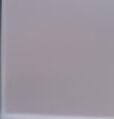

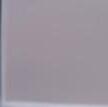














How do we ascertain what is true? What is real?











the Relationship between the Indigenous people of Peru and the Peruvian Government
Frances Conrod-Wovcha
Oliver Zhu
Frances Conrod-Wovcha
Elizabeth Tuttle
Clara McKoy
Atari Ernst
Bennett Sauer
Catherine Hooley
Oliver Zhu
Oliver Conrod-Wovcha
Elzie Bieganek
Kate Hanf
Violet Benson
Amalia Laguna
Eliza Farley
Audrey Senaratna
Trevor Hou
Henry Batson
Ali Manzoor
Sophie Nguyen
Ivy Raya
Cosette Switzer
Kai Wetternach
Nolan Wagner
Clea Gaïtas Sur
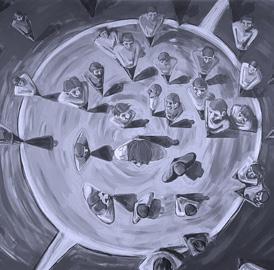
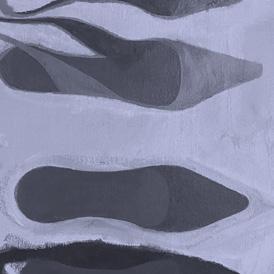
Linnea Cooley
Mimi Huelster
Alyssa Ebert
Adeline Horstman
Heidi Deuel
Adeline Horstman
Maya Coates-Cush
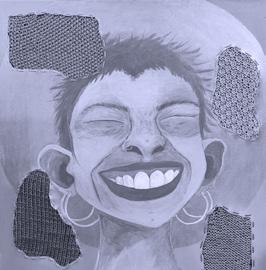
Hobbs Lillygreen
Talia Cairns
Maya Ketema
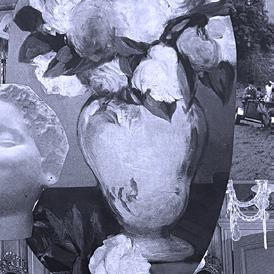
Scarlet Gibson
Henry Whelan
Jane Higgins
Maik Nguyen
Milo Clifton
Wyatt Tait
Coda Wilson

Alyssa Ebert
Valerie Wick
Echo Dayton

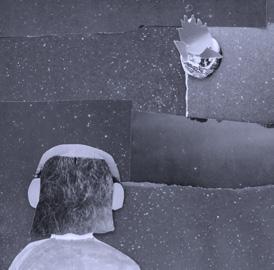
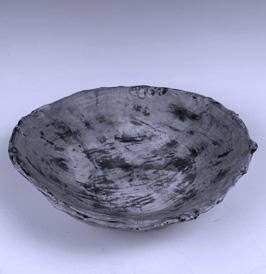

Savannah Switzer
Zoe Huelster
Zoe Cheng-Pinto
Cassandra Overholt
Charlie Beckman
Hannah Brass
Mikkel Rawdon
Mikkel Rawdon

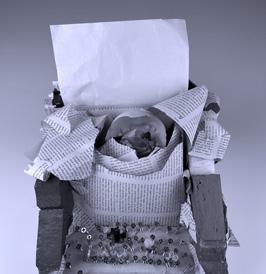
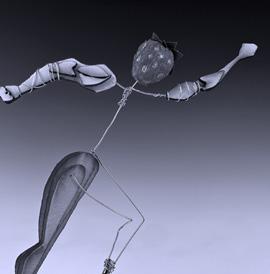

Quenby Wilson
Lily Malloy
Hadley Dobish
Audrey Senaratna
Yassin Mokbel
Nora Shaughnessy

Carys Hardy
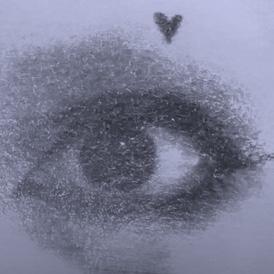
Thomas Ferguson
Violet Benson
Thomas Kovarik
This year’s Iris: Art + Lit cover art was created by the AI art program DALL-E 2 as a response to the prompt “visual illusion.” While designing the magazine in 2022, we saw the widespread use of generative AI programs such as ChatGPT, DALL-E, Midjourney, and others. Since then, the promise of AI-generated content has stood in contrast to the danger it poses to creators’ livelihoods and its implications for the future. In creating “Blue Tiled Shelf,” we aimed to represent the full scope of illusion and allusion by playing with the picture viewers see on the page and the story of how that picture came to be.





















You can feel the earth underneath your feet. It’s cool to the touch; your fingers come away damp. The sky is burning blue and dotted with clouds. Silver linings, golden birthdays; this, for better or for worse, is the world you have always lived in.




















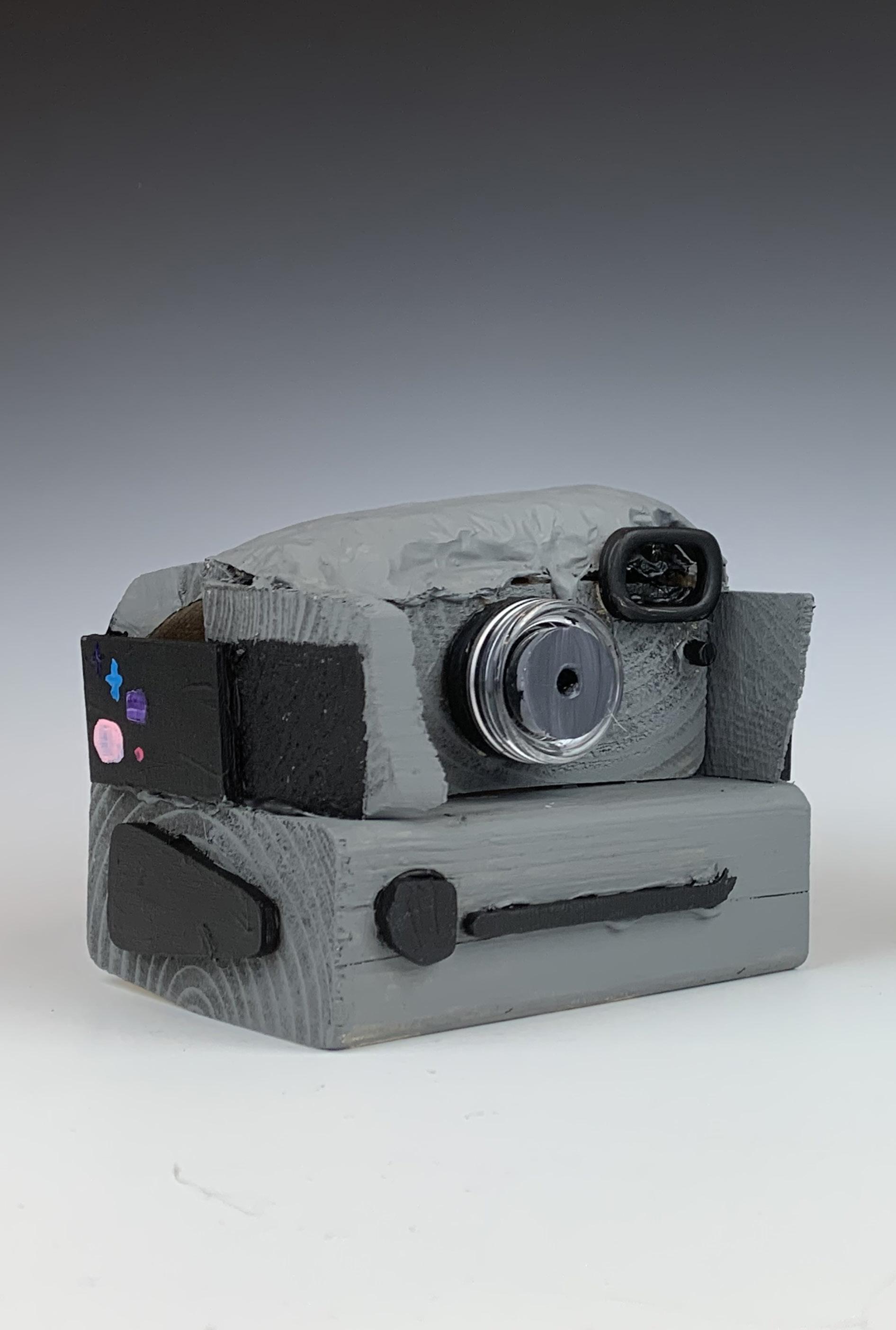
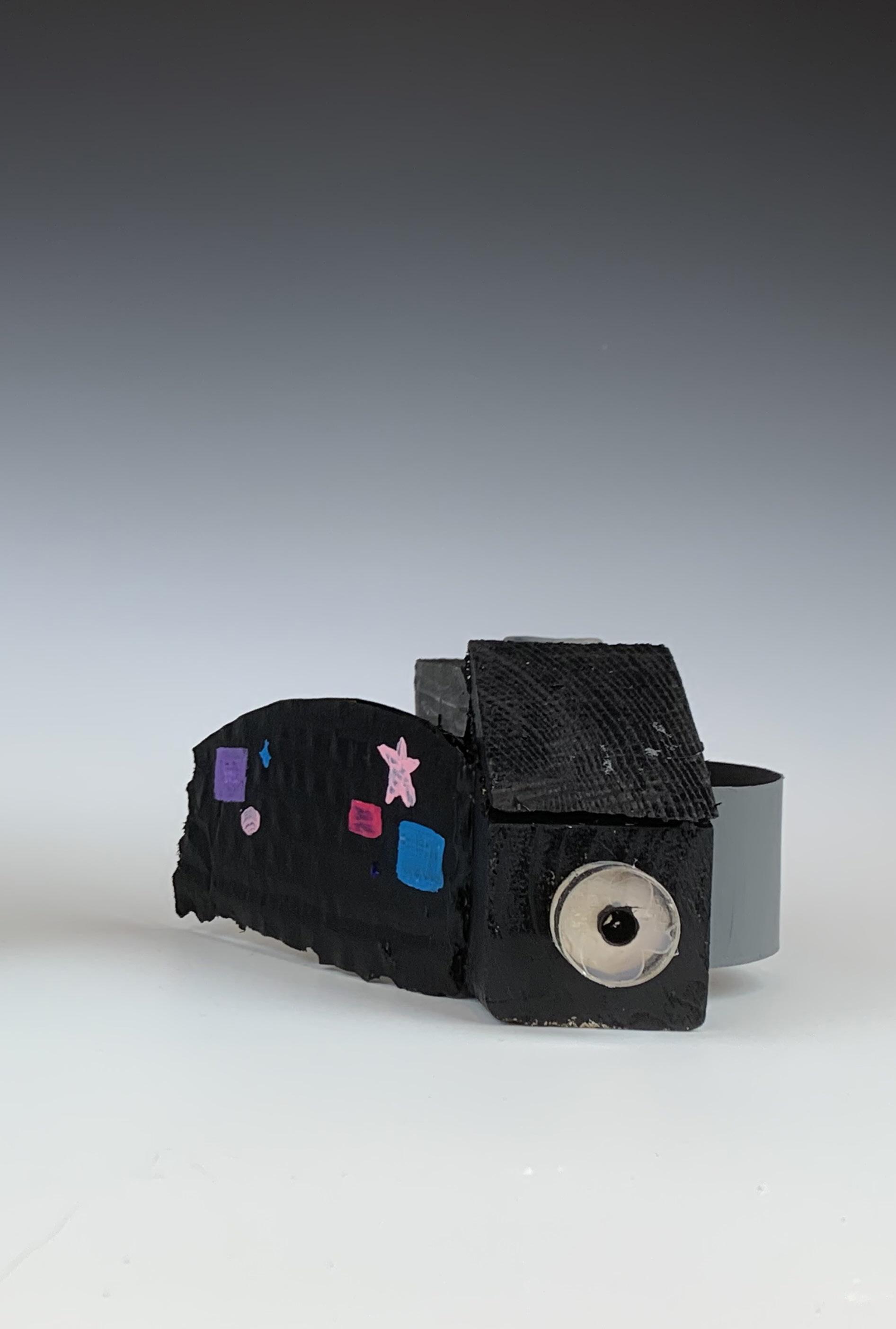
story
, Frances Conrod-WovchaThe rain drummed on the metal roof above his new room. This place was nothing like his old apartment in Chicago. Instead of looking out over a cityscape, he looked out over an endless, misty forest filled with ancient, towering trees. After his parents divorced, his mom decided it would be good for Theo to get a fresh start. Before he left, his dad gave him a pair of dark red converse. He wore them so much that the bottoms were coming apart, and the outside canvas was ripped. Since they moved, his mom had been too preoccupied with work to spend time with him. He felt alone in this big, old farmhouse.
After hours of unpacking and decorating, the room was filled with books, plants, posters, and string lights. He walked down the old, steep, creaking stairs, and across the living room to his back door. Even though the house had lots of windows, each room felt dark and cold. He entered his mud room and pulled on his raincoat and converse. The rain had slowed, but it was still drizzling outside. He stepped out of his back door and pulled it shut behind him. As he walked down the stone steps, he looked around and the dense forest in front of him. He stepped down and began walking into the woods when he saw a large structure in one of the trees ahead of him. As he got closer, he realized it was a tree house. The windows glowed with warm light, and inside he could see a boy reading. He had soft brown eyes and dark messy hair, and he wore a huge black sweater with the hood pulled up. He was concentrating on his book, so he didn’t notice Theo watching him. The house was small, with a little chimney peeking out of the top of the roof with a little stream of smoke coming out. Realizing that he was staring, Theo turned around and walked back the way he came. He walked up the old, mossy steps
watercolor and ink (16” x 11”), Linnea Cooley
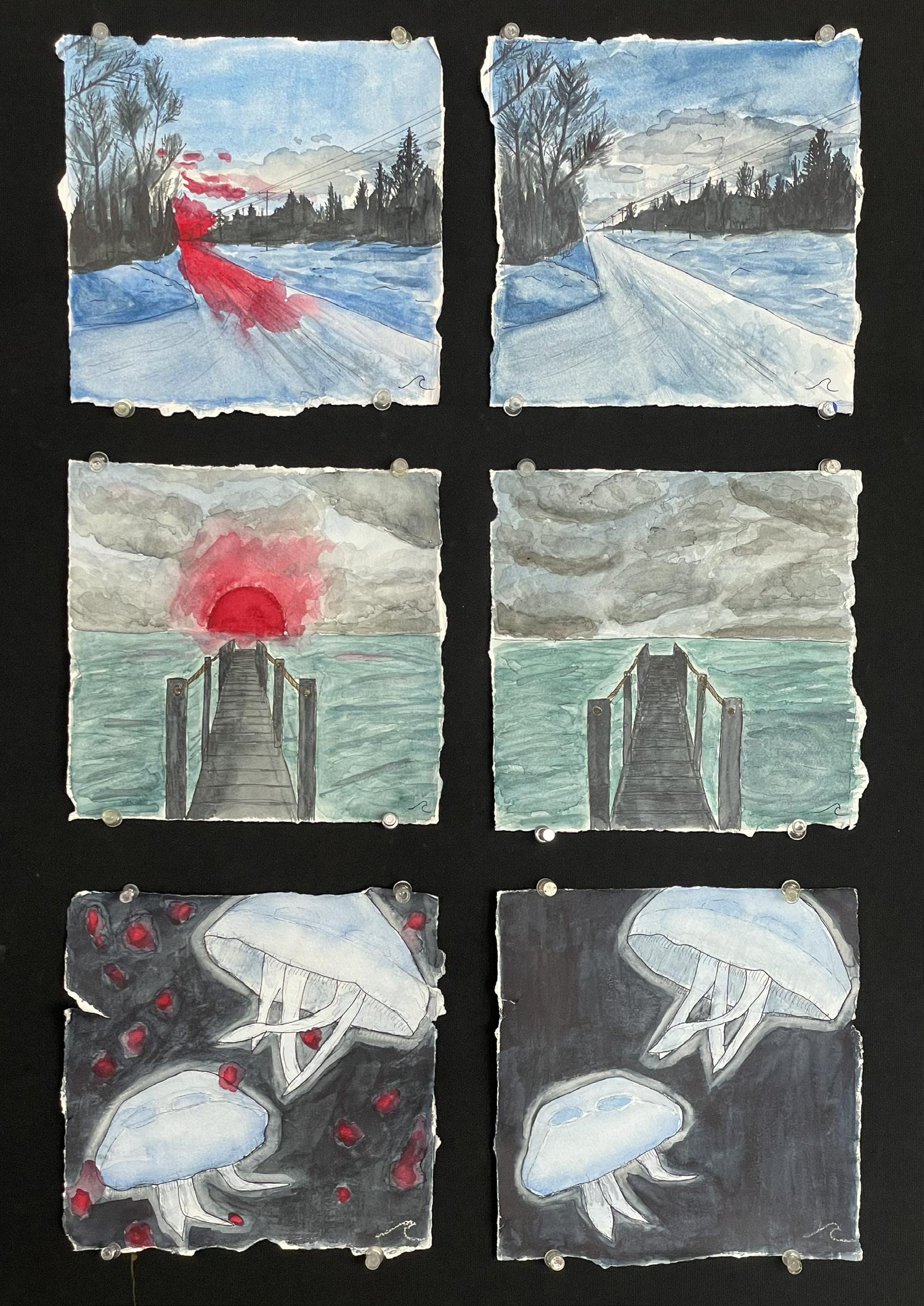
and returned to his house.
His alarm went off at 6:30 am the next day. He got dressed, brushed his teeth, and packed his bag. He walked down his steep, creaky stairs and put his red shoes on by the door. As he walked down his front steps to his bike, he thought about the boy in the woods. They looked around the same age, and Theo hoped they went to the same school. The bike to school was cold, and his heart skipped a beat once he got there. Standing in front of the school was the boy from earlier. He stood alone, and when he noticed Theo looking at him, he walked down to him. “What’s your name?” he asked. “My name’s Theo. What about you?” he responded. They talked until the bell rang, and they had to go to class. His name was Remy. He had lived here for his whole life and spent most of his time in his tree house. He asked Theo about Chicago and how he was doing. They hung out during the day, and by the end of school, Remy invited Theo over.
They biked to the treehouse together and climbed up into it. It was a small room with wood walls that smelled of cedar trees with a bookshelf, a bed, a small wood stove, a wardrobe, and a little window bed with a stack of books next to it. Theo sat himself down by the window and looked around. “Would you like some tea?” Remy asked. “Yeah, sure, thank you,” Theo replied. When the tea was ready, they sat down and talked for hours. Once it began to get dark, Theo packed his things and said goodbye. On his walk back, he thought about Remy and how happy he was to finally have a friend. He arrived at his house and locked up his bike. He walked up the steps, shut the door behind him, and went in to tell his mom about Remy. The house was dark and quiet. “Mom?” he called out. When he got no reply, he called out again. “Mom!” He walked around the house looking for her but couldn’t find her. Finally, he checked her office, where he found her asleep on a pile of papers. He sighed as he took a blanket from a chair and placed it on her shoulders. He walked
“Realizing that he was staring, Theo turned around and walked back the way he came.
away and went up to his room and fell asleep. The sun streamed through his curtains, forcing him to wake up. As he was leaving, he called out to his mom, telling her he was going. He waited for a second, hoping she would respond, but when the house remained silent, he walked down the steps and left to go to school. When lunch came around, he still hadn’t seen Remy. He sat at a table and was about to start eating when a girl approached him. “You’re friends with Remy, right?” she asked. “Yeah, why?” he responded. “Oh, this isn’t really my place to say this, but I’ve heard some scary things about him. Just be careful. He can’t be trusted.” she said before walking away. Theo sat there, confused and not knowing what to say. He and Remy had just hung out, and he had been so nice. He chose to ignore it and carry on with his day. When he got home, Remy was waiting to be at his door. “Hey,” Theo said when he walked up to him. “Hey,” Remy said, smiling. “Where were you today? I didn’t see you in school.” Theo asked. “Oh… I was busy. Sorry.” Remy said after a moment’s hesitation. “Anyways, wanna see something cool?” he asked. “Sure,” Theo said as he followed Remy into the woods. They walked silently until Remy began running. “I don’t know where we’re going!” Theo yelled, but Remy was already far ahead. Theo’s feet pushed into the soft earth as he laughed and chased after Remy. He ran after him until there was no path, and he didn’t even know where Remy was. Up ahead, he saw a clearing in the woods. He walked quickly until he came to the open field. He saw Remy lying in the grass, looking up at the sky, his expression blank. Theo walked over and sat down next to him. Remy looked up at him and gave Theo a sad smile. “Have people at school warned you about me yet?” Remy asked. “I- I mean one girl said you can’t be trusted but nothing other than that.” Theo stuttered. “Yeah, well you should have listened to her.” Remy said darkly. Confused, Theo stood up. Remy stood up with him and
Theo’s feet pushed into the soft earth as he laughed and chased after Remy.
looked into Theo’s eyes. “I’m sorry,” Remy said as he grabbed a knife from his pocket and stabbed Theo in the stomach. Theo dropped to the ground, and the girl’s voice played in his head. Just be careful. He can’t be trusted. Remy stood up, wiped his bloody hands on his pants, and left Theo in the field as he walked back toward the woods. ai
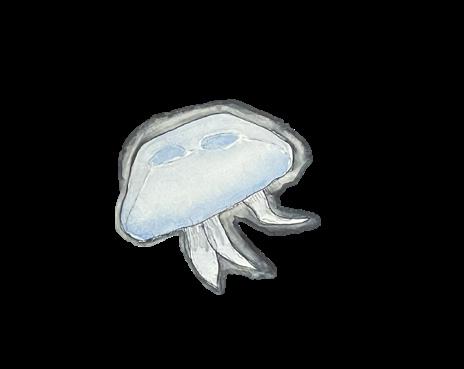



UNTITLED
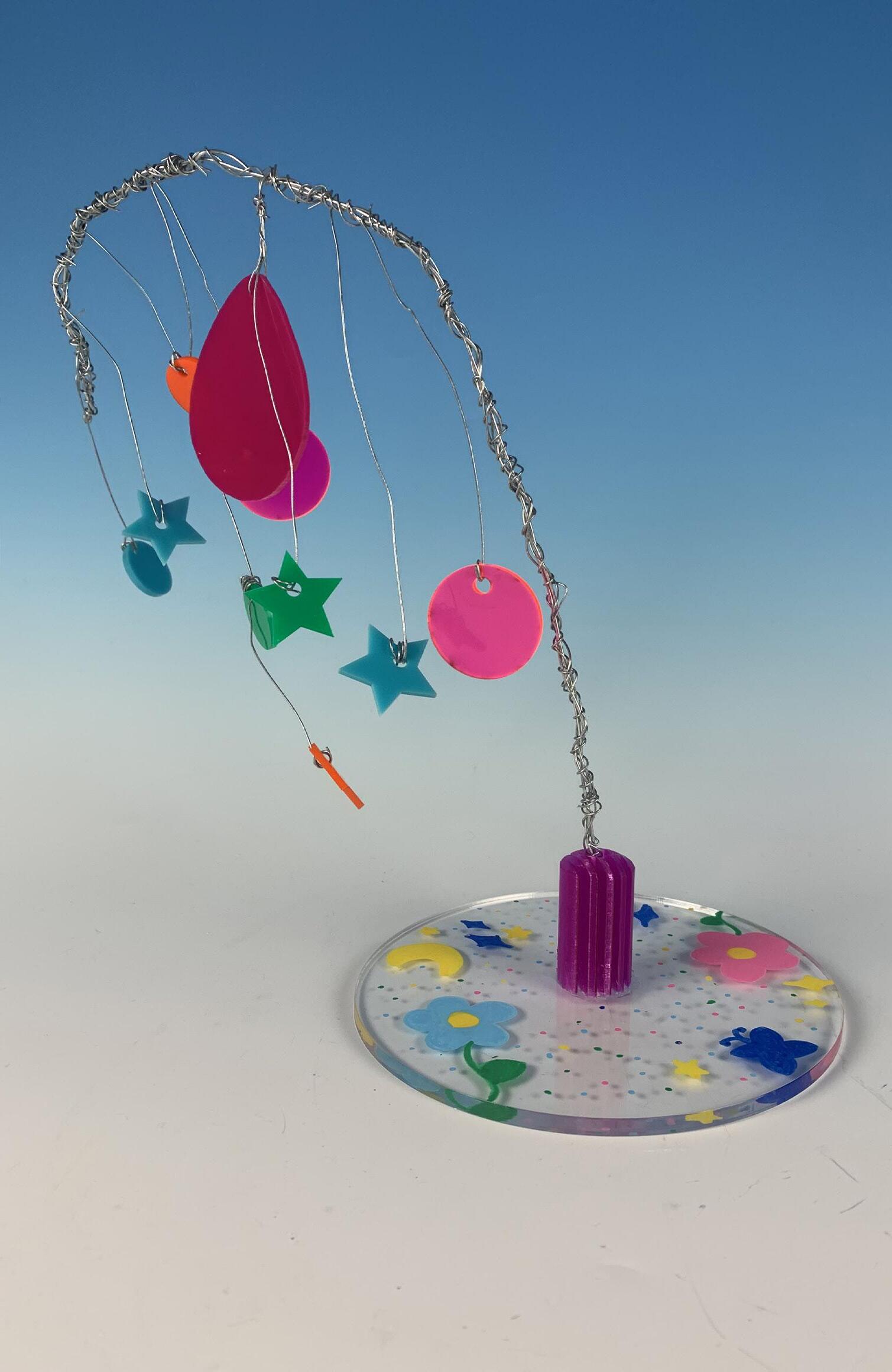
UNTITLED

Wire and plexi - 15” x 15” x 15”
Zoe Cheng Pinto
I HOPE GOD GIVES ME SMILE LINES YOU CAN SEE FROM SPACE
mixed media (4’ x 3’), Mimi Huelster
20

wake, and take note of the beddings. the softness that caresses and the firmness that supports, the layers of woven, spun fiber trapping the heat, that the breeze, once the blankets are shucked off, is pleasantly cool upon your unbroken skin.
sit upright, and notice the spine, muscle, cartilage that lets the action remain painless.
see that you can see the sun through half-drawn curtains, can hear birdsong through screen door and glass. move your fingers and confirm that they are all there.
as your feet carry you to continue the day outdoors, notice the unbroken flooring and unbroken soles, heels.
note how when you bid someone good morning, they say good morning back. the people around you are successful, far greater than you; you are surrounded by teachers.
your friends look so happy talking to their friends, and isn’t it a blessing that the people you care for are loved?
see that for each percentage lost, there is a percentage and more gained.
the sun is merciful to blaze so brightly, feeding the trees and grasses that in turn feed you.
the clouds are generous to cloak over the sun, bringing rain in times of drought, replenishing lakes and ponds, keeping sap and blood liquid and plentiful. the wind is kind, carrying seeds and spores on a free ride, sending them far away from their parents to start their own families in a new world.
isn’t it a wonder, how the leaves chatter and chortle in a language we cannot decipher? the roaring applause of waves breaking upon a cliff? the clouds and the stars, painting pictures for nightly viewings with no entrance fee?
notice how you have friends who are alive. family who is alive. and you are alive. you breathe and think and love, and notice how it will not always be this way.
in the worlds beyond, there’s a great possibility that silence and inaction will be in abundance. this is our first time living and we may never draw another lot. this may be the best we get.
see that each step you take on that finite path might be your last.
I remember the first time I saw you cry. How your face remained blank as tears fell from your eyes and slid down your cheeks
Like raindrops falling from the sky during a spring storm. Slow and calm at first, but the longer it rains, the harder it becomes. The water drenches your clothes, the wind pushes your body, and thunder shakes the air around you. The chaos continues until the thunder stops, the air becomes still, and the rain returns to a steady drip. Your heartbeat slowed as you wiped your eyes one final time.
You sat there with your wet sleeves, runny nose, and bloodshot eyes. But the storm was over, and eventually, The sun came out, and you smiled.

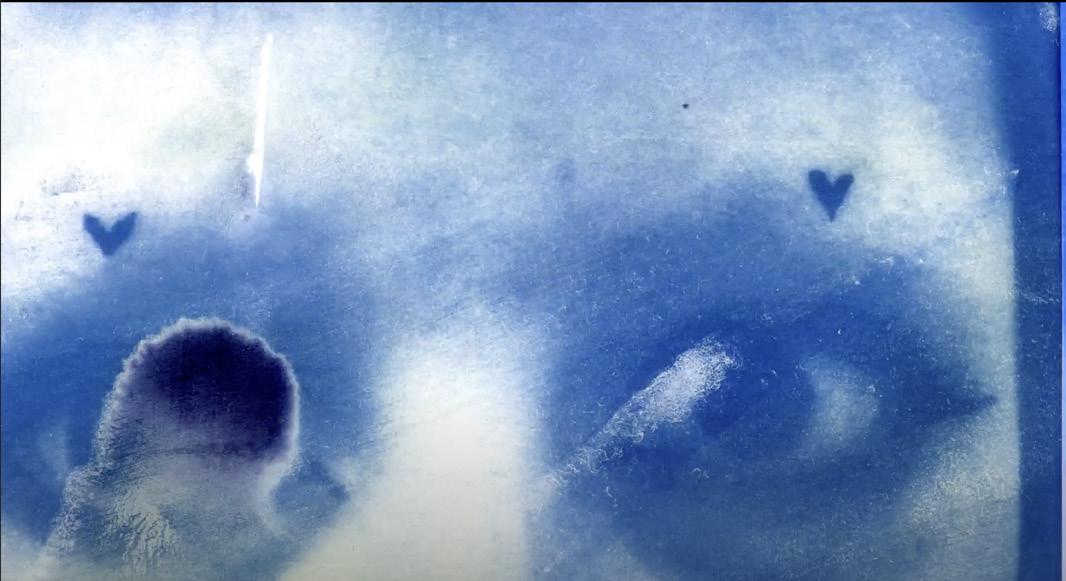
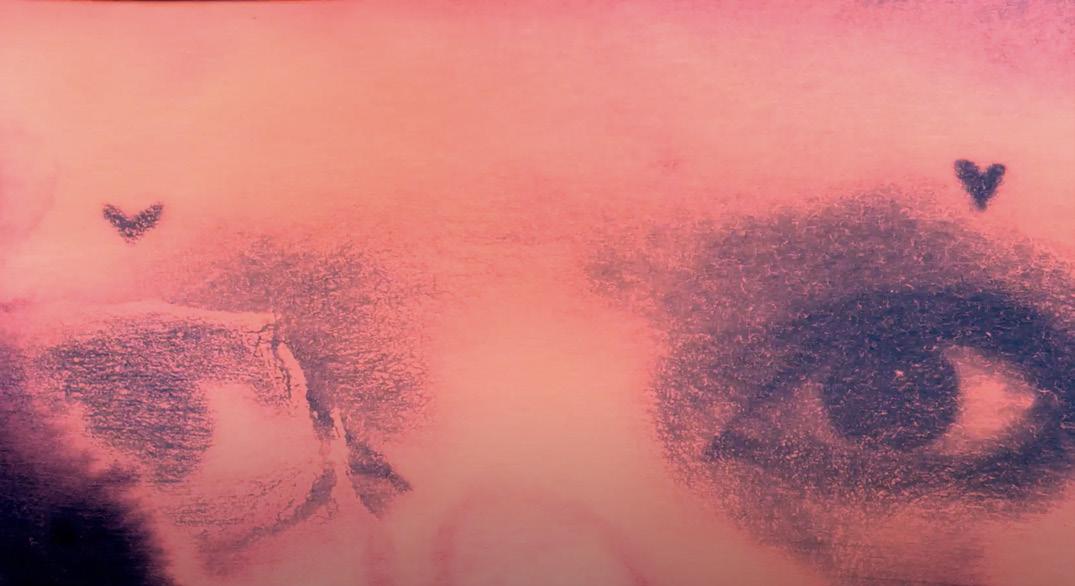

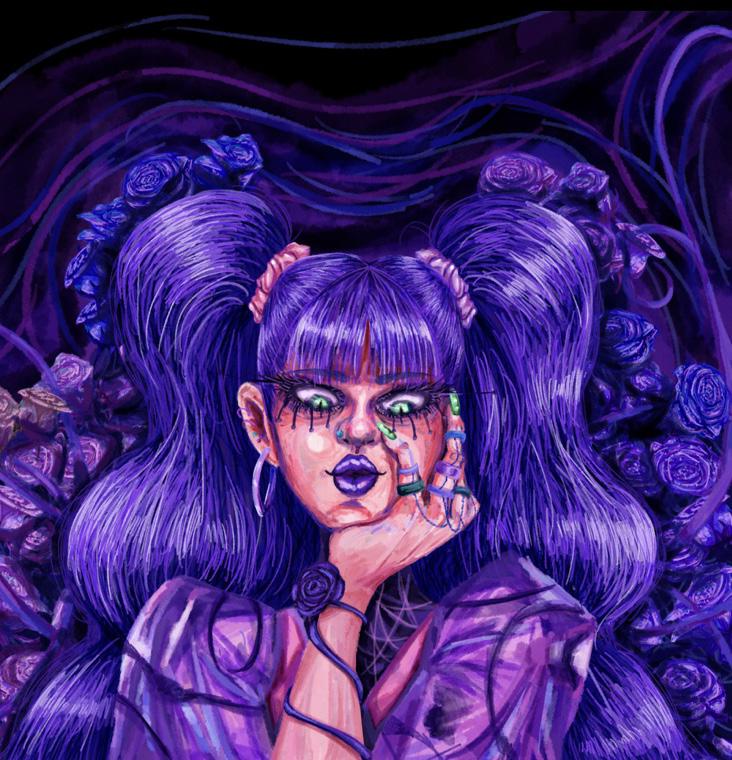
a poem, Elizabeth
Tuttlethe fun i have at sleepovers is unmatched; bat-sleeping, raccoon-feeding, human-watching enjoyment, of course, the secret-spilling. vulnerability.
everything is fine till, the sun sets, all the animals come out.
little beady eyes reflected by moonlight shine deep into dog’s soul, waiting with open arms to consume our secrets.
dog stands alone, unlike i, but faces more than i ever could.
something greater than fear ripples through his chest, i can see it in his body and hear the metal charms on his collar shake.
he whimpers, like i, as the darkness as the questions surround us.
he never chose this but i did.
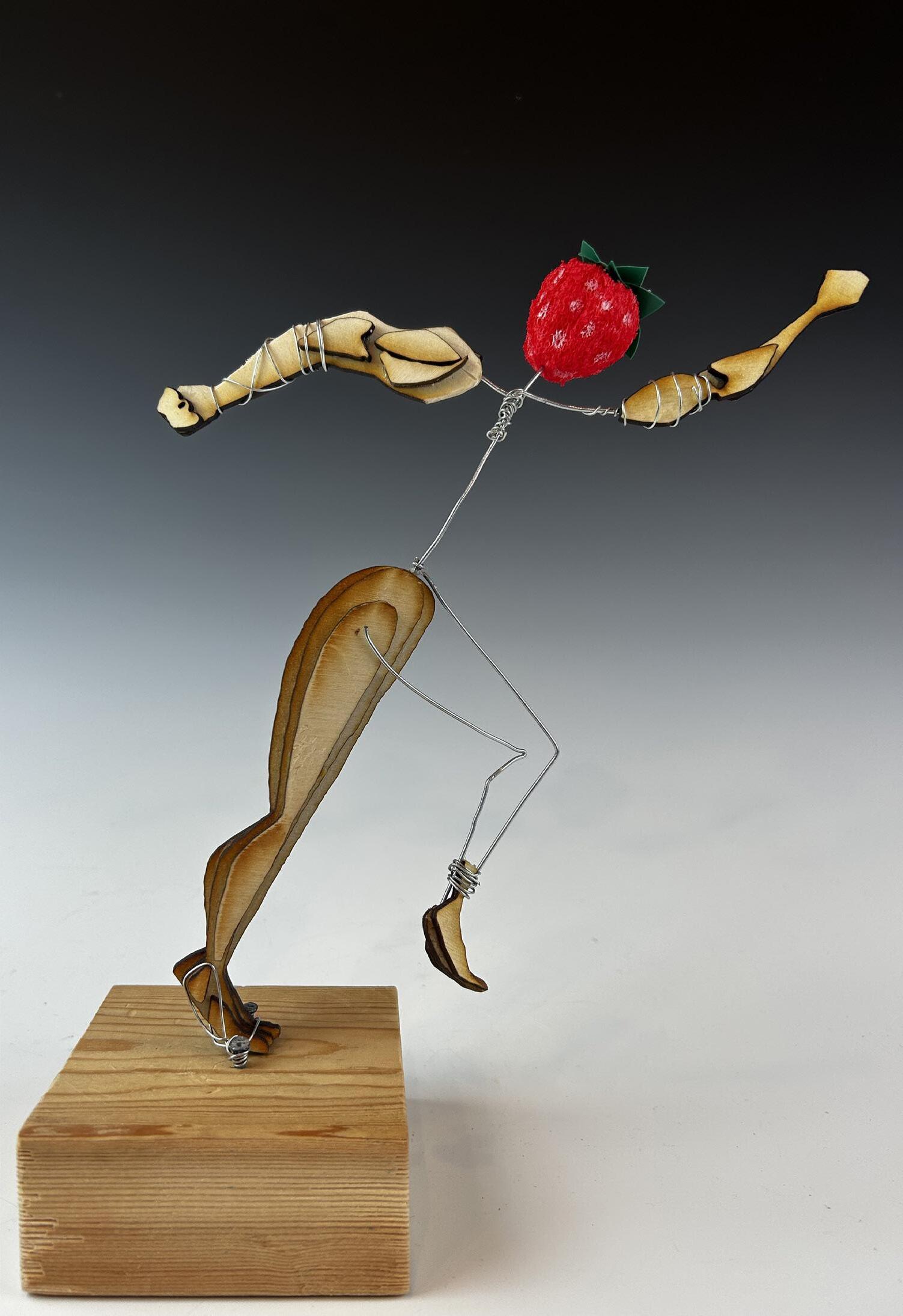

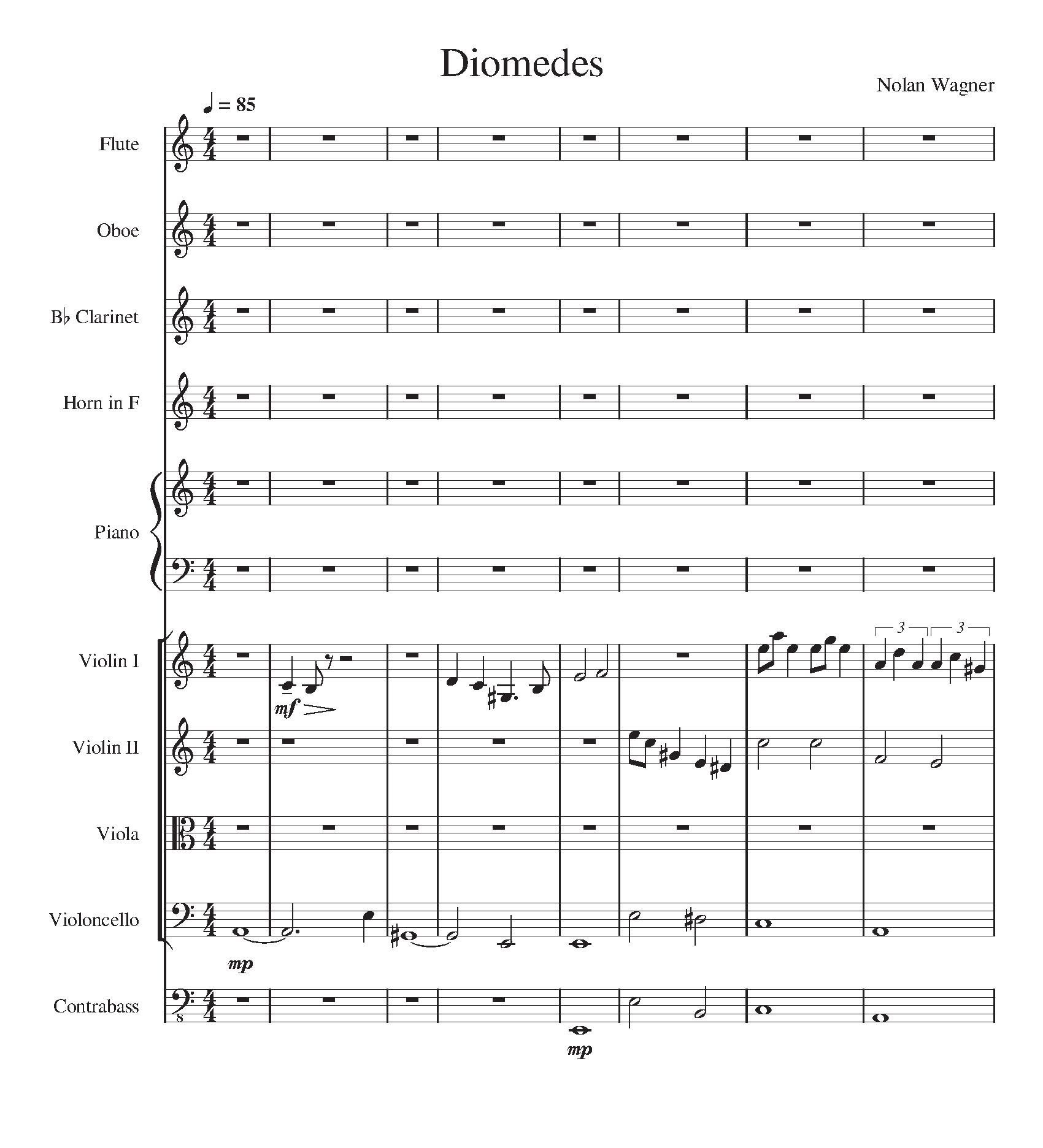 by Nolan Wagner
by Nolan Wagner
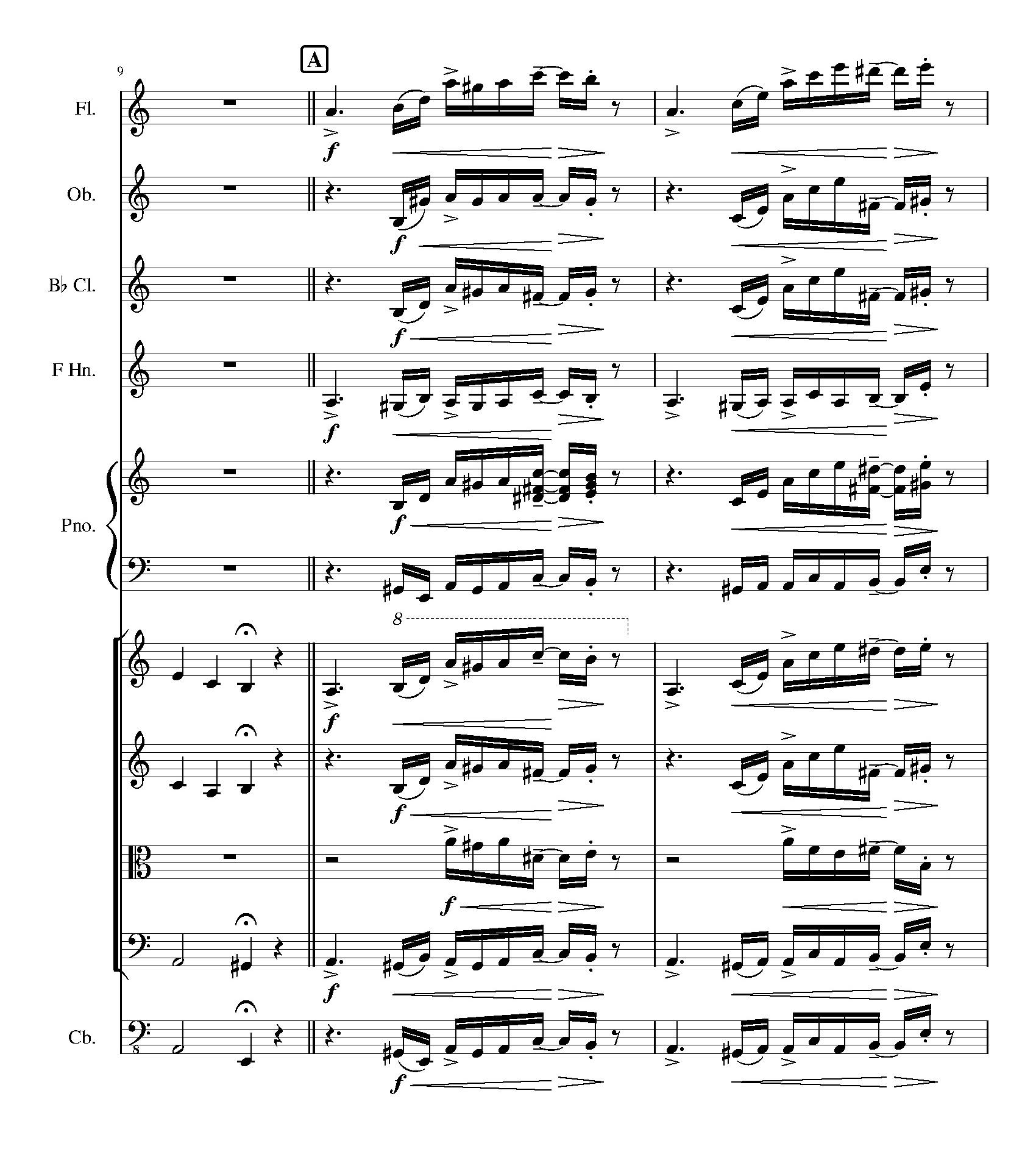
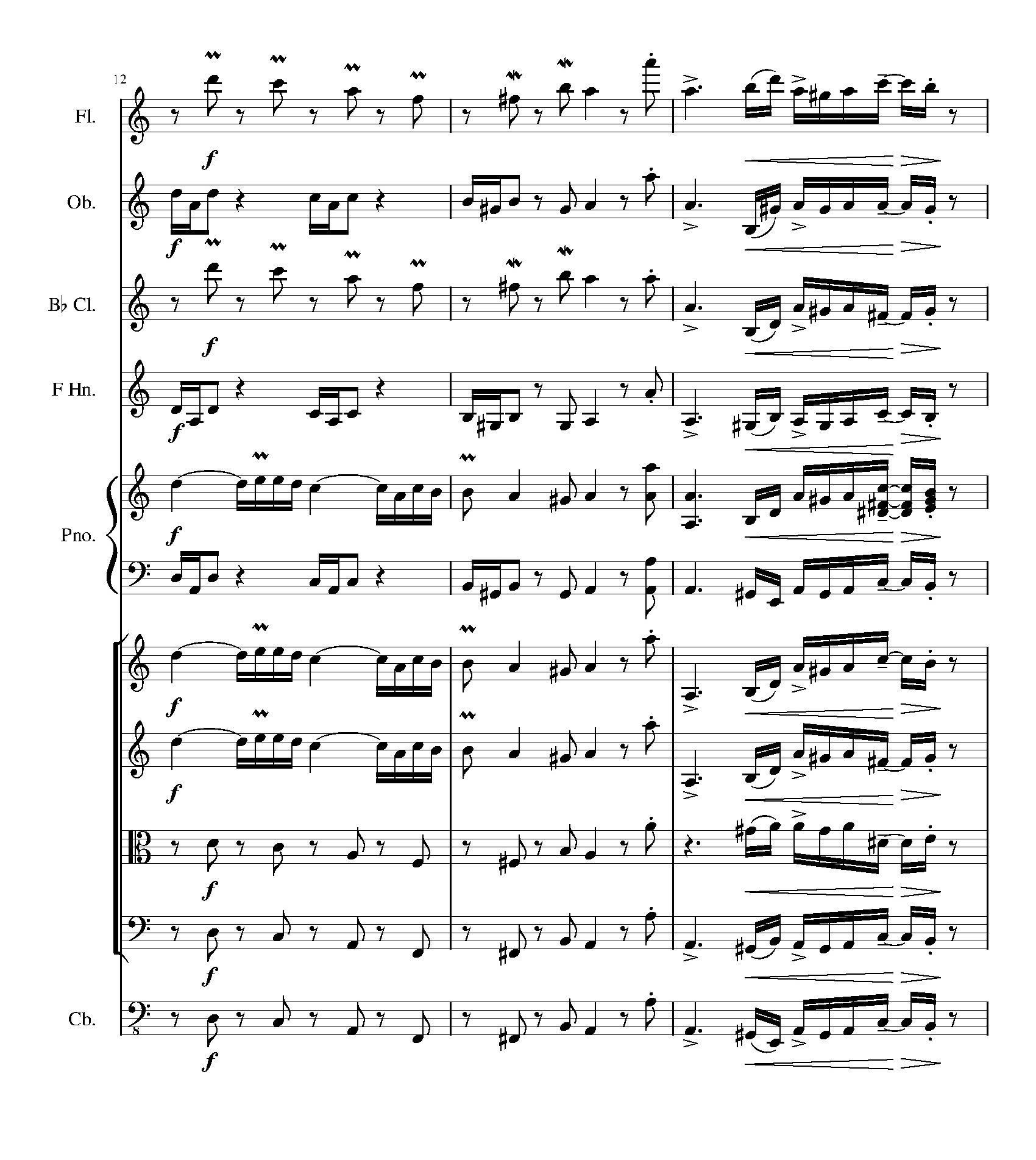
COMPOSER AND PIANIST.
Senior Nolan Wagner runs through the piano part of his piece during rehearsal.
Senior Nolan Wagner has long been a fan of music composition, and he now gets to showcase this passion through a piece titled “Diomedes,” which he composed for the Honors Symphonia Orchestra.
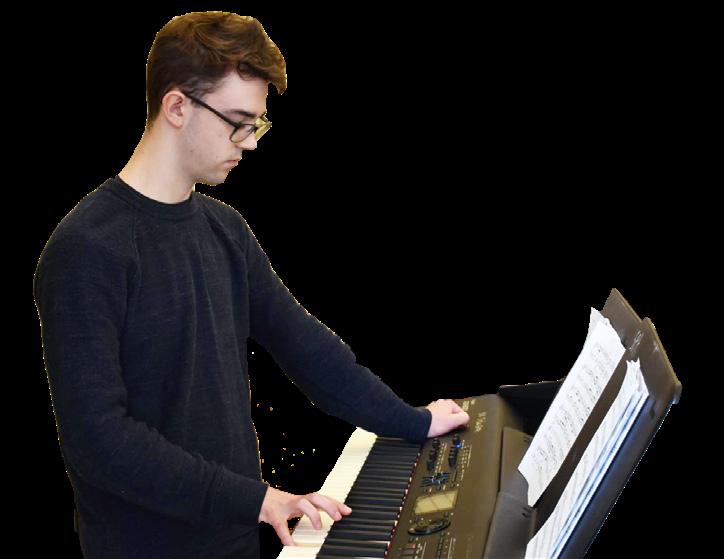
In order to craft this piece, Wagner drew from multiple sources of inspiration, ranging from previous classwork to things that he has read in his free time.
“The inspiration for the name specifically was because I read the Iliad, and I was like, you know, I need a name for my piece … and it [the name] was cool,” he said.
As for the music itself, one of the piece’s central melodies is based off of a twobar long fragment that was composed by the philosopher Ludwig Josef Johann Wittgenstein.
“[For] the first melody I took that [fragment and] I extended it and added more layers to it,” he said. “The second melody was something I composed using a fourpart harmony technique that I learned in Music Seminar last year,” Wagner said.
Although Wagner started off with a decent amount of inspiration, composing a piece is no easy feat and requires a lot of time to think through each of its key components.
p. 30
“I started with the melodies,” he said, “and then I had to say okay: ‘Which instruments do I want to play this? Which instruments do I want to play the harmon[ies]? … Where do I want this [section] to be in the piece? What are all the details like tempo and time signature?’ … You can’t just write it [from] start to finish like you do an essay or something.”
Once Wagner developed a rough draft of his piece, he then worked with orchestra teacher Almut Engelhardt throughout the fall semester to fill in any missing details and add the final touches. After turning in the finished piece at the beginning of this year, it was time for the orchestra to start rehearsing.
Engelhardt has taken the lead when it comes to teaching students how to play the piece; however, Wagner occasionally gives his input on how he wants certain parts of his piece to be played.
The entire process has been very rewarding for Wagner, and he urges any interested students to reach out to Engelhardt about composing their own pieces. He said, “I would encourage anybody who … likes composing and has enough time on [their] hands to do it.”

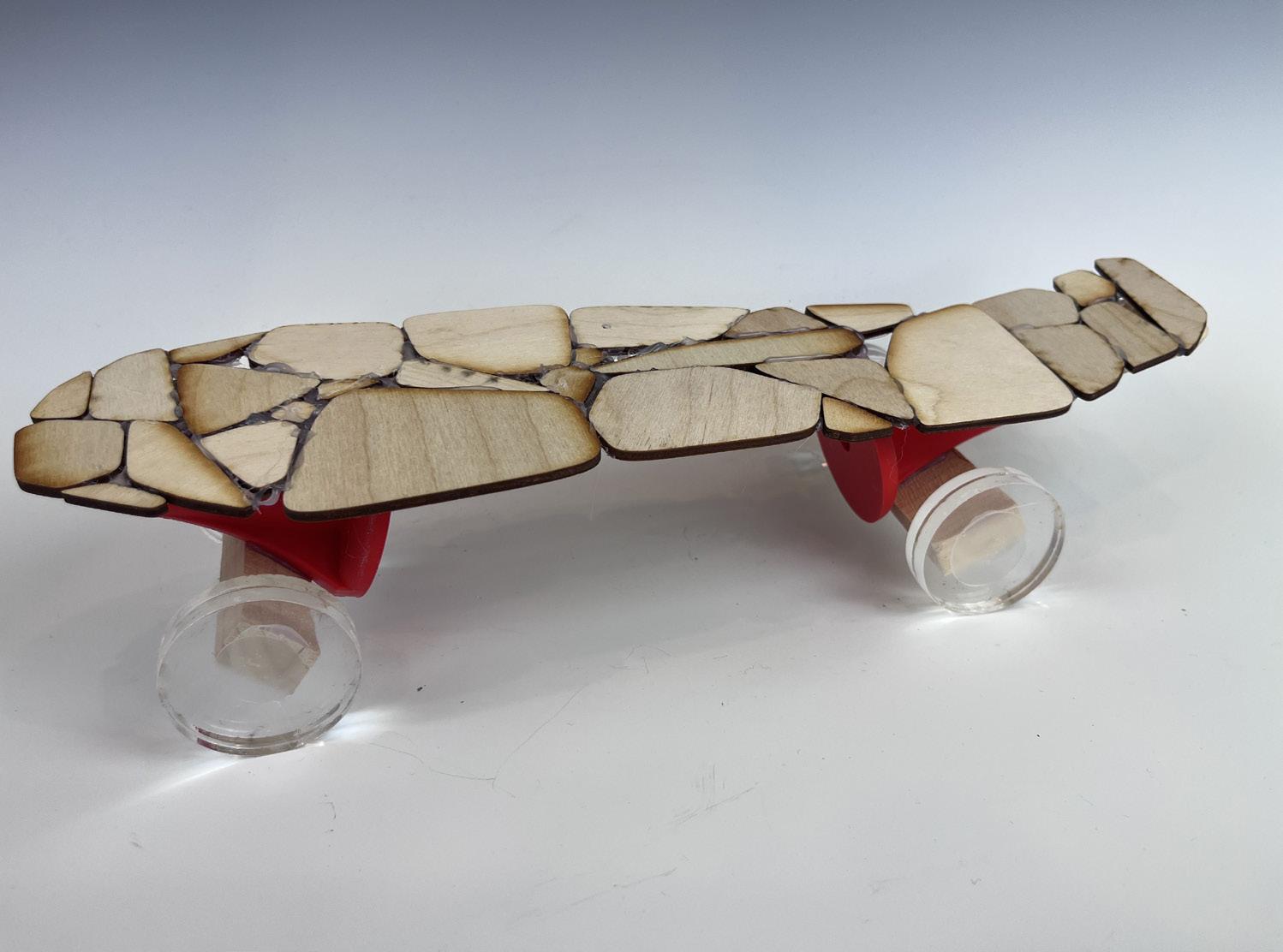

RENVERSE
photography (13” x 19”), Lily Malloy
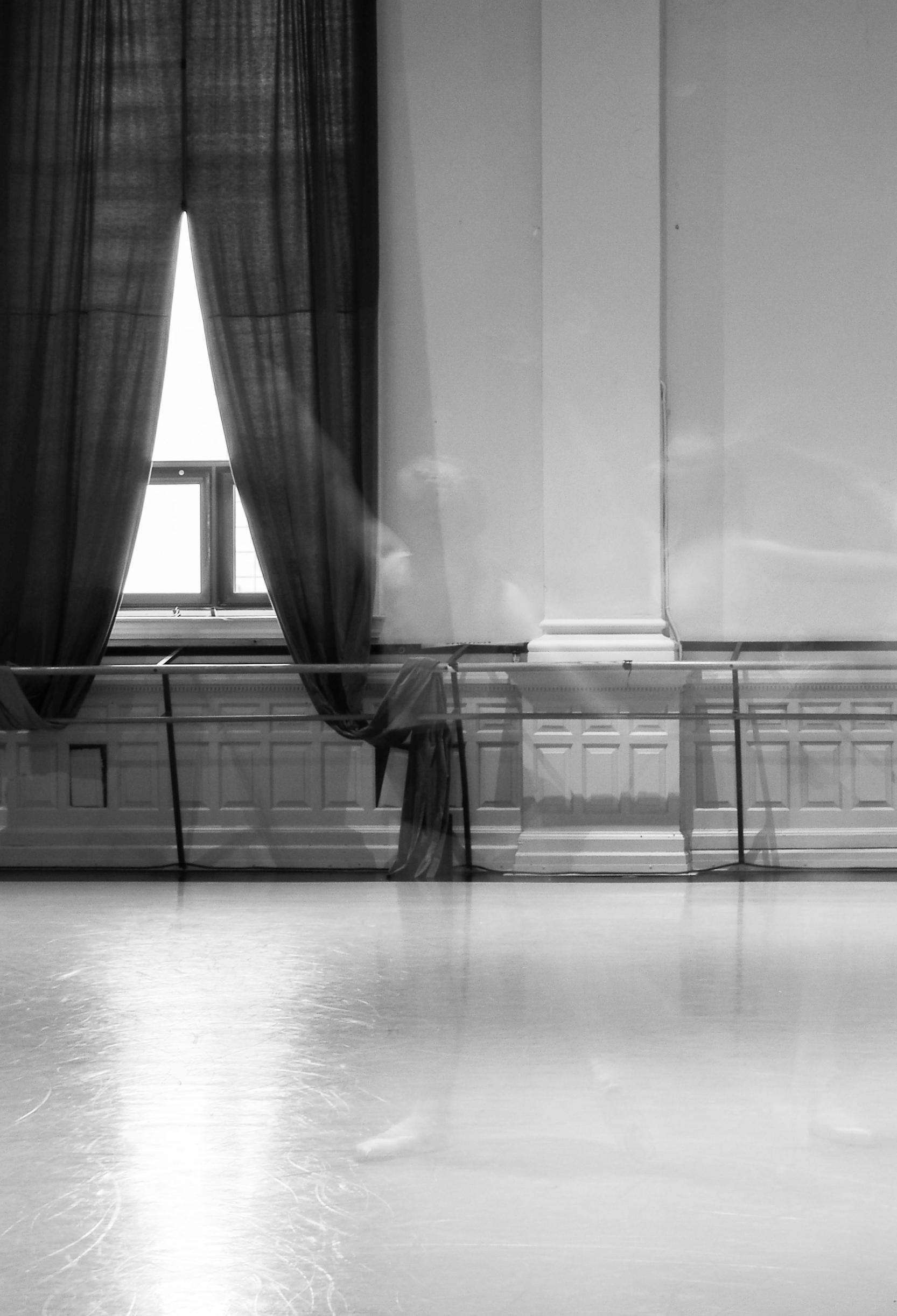
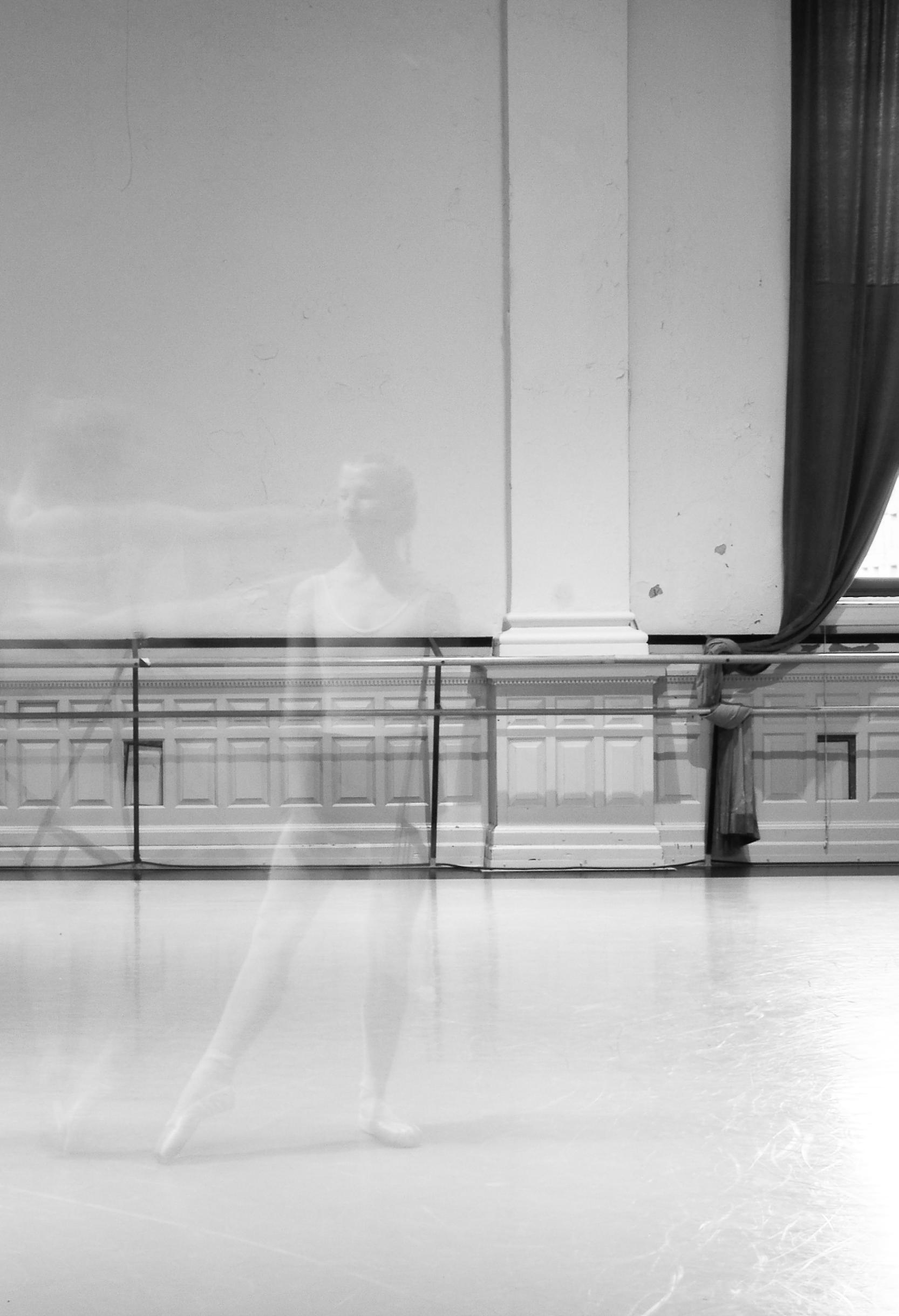
Even a shallow investigation of ballet will reveal that the art form is inundated with fabrication. Not full-fledged fakeness, or complete inauthenticity, but an altered sense of reality.
Croisé is one of the eight basic facings used in classical ballet. Both hips can be seen by the audience, but the body is positioned at an angle so the leg closest to the audience is in front of that further from the audience. Any step can begin from croisé—turns, jumps, adagio—and the angle is designed to illusion the body to be as turned out as possible. One of the most common corrections younger dancers receive is to imagine both legs as striped barbershop poles that are exponentially rotating backward. The seven other facings are catered similarly to a certain aesthetic. To elongate a line, to make a leg seem higher, to make the body look more slim. Throughout my childhood, I periodically wandered into my mom’s bathroom when she wasn’t home. It wasn’t to put on her makeup, attempt styling my curly hair like hers, pin straight, or to try on her jewelry. I instead cleared the countertop, stocked the toilet paper, and organized each product. I sat myself on the tile floor to dig deep inside both cabinets. The bathroom paraded a charming shower curtain with cream florals and white towels. The tiles, each a tan hexagon resembling flowers, were speckled with the remnants of years of mom and daughter pedicure dates.
Tights are pink, ballet flats are pink, pointe shoes are pink. It goes without saying the world of ballet is catered to eurocentric beauty standards.
Tights are pink, ballet flats are pink, pointe shoes are pink. It goes without saying the world of ballet is catered to eurocentric beauty standards. It likes to pretend that each dancer is white, skinny, tall. One of my earliest memories takes place in my childhood home. My sisters and I shared this pink stroller, a two-toned magenta
and mauve baby stroller we pushed our dolls in. We each had our own doll, off limits to the others. Mine never left my side. One humid afternoon in August, as I felt the breeze from my open window tickle the back of my neck, I decided to push my baby down the stairs in the same way I had watched my big sister do time and time again. The entire contraption was heavier than I anticipated. My tiny body was a humble match for the stroller. I made it only down the first segment of the stairs and the landing as I scanned the last stretch in front of me, a straight shot of wooden stairs with a banister to the left that my arms had to reach up towards in order to grasp.
I moved the serum bottle jerkily and heard only the shatter of it hitting the tile floor.
I felt little shards of glass tickle the tops of my bare feet and peered down to see the damage. It was manageable. Beyond the few small shards on my feet, the bottle was in two pieces.
Ballet expects each dancer to create grace and beauty onstage, sustain body weight over little blocks of solid, spin in circles, jump and leap, all without bulking up too much or building too much visible muscle. It likes to ignore the staggering numbers of eating disorders among dancers, issues of overuse injuries, and competition.
Gingerly, I raised the glistening shard of glass off the floor. My feet remained frozen in place as I crouched into a squat. My chest pressed against my knees firmly, the inclined beat of my heart percussing into my body. Ba-boom ba-boom ba-boom. I assessed the bathroom once more, relieved by my view of the metallic trash can only a mere foot behind me. I crossed my right hand over my left so my body didn’t adjust too much, risking the shifting of the glass on my feet and the associated pain. My swiftness was hijacked when my gaze deviated from the glass and I glanced towards the target. I felt the slice even before I reverted my neck to its original position. Then I saw the blood, seeping out of me like the spell cast over the fairies by a winter’s frost or decimation of a tree.
Dance does not allow for grimaces, displays of pain or frustration. To cringe during a combination is to fall on the floor or collide with another dancer. To glance down at barre is to spit at your teacher’s feet.
“Lifted chin,” “close-lipped smile,” “eyes to the balcony of the audience.” Is it not a game of play pretend? ai

AMBIVALENCE photography (8” x 10”), Hadley Dobish
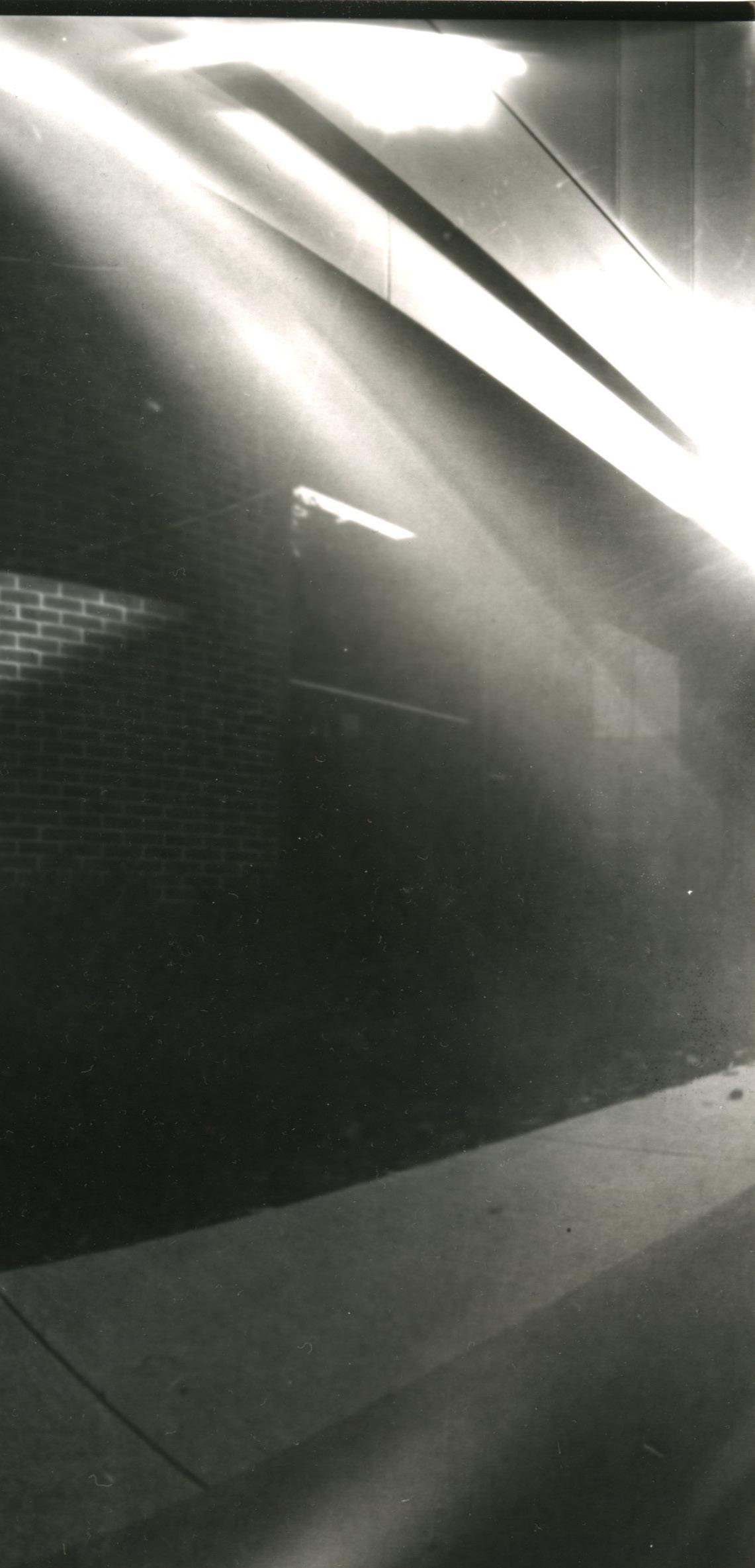
a poem, Atari Ernst
As I look at my phone Waiting for a reply I shake, I’m scared A bubble with three little Dots on the inside flashing Ding! Goes the phone
I nervously look at it And I had thought right I cry, cry, cry
All though the night
It was an obvious lie I had trusted her once And never again I shall never trust anyone
Ever again
CONSUMPTION
mixed media (3’ x 2’), Adeline Horstman
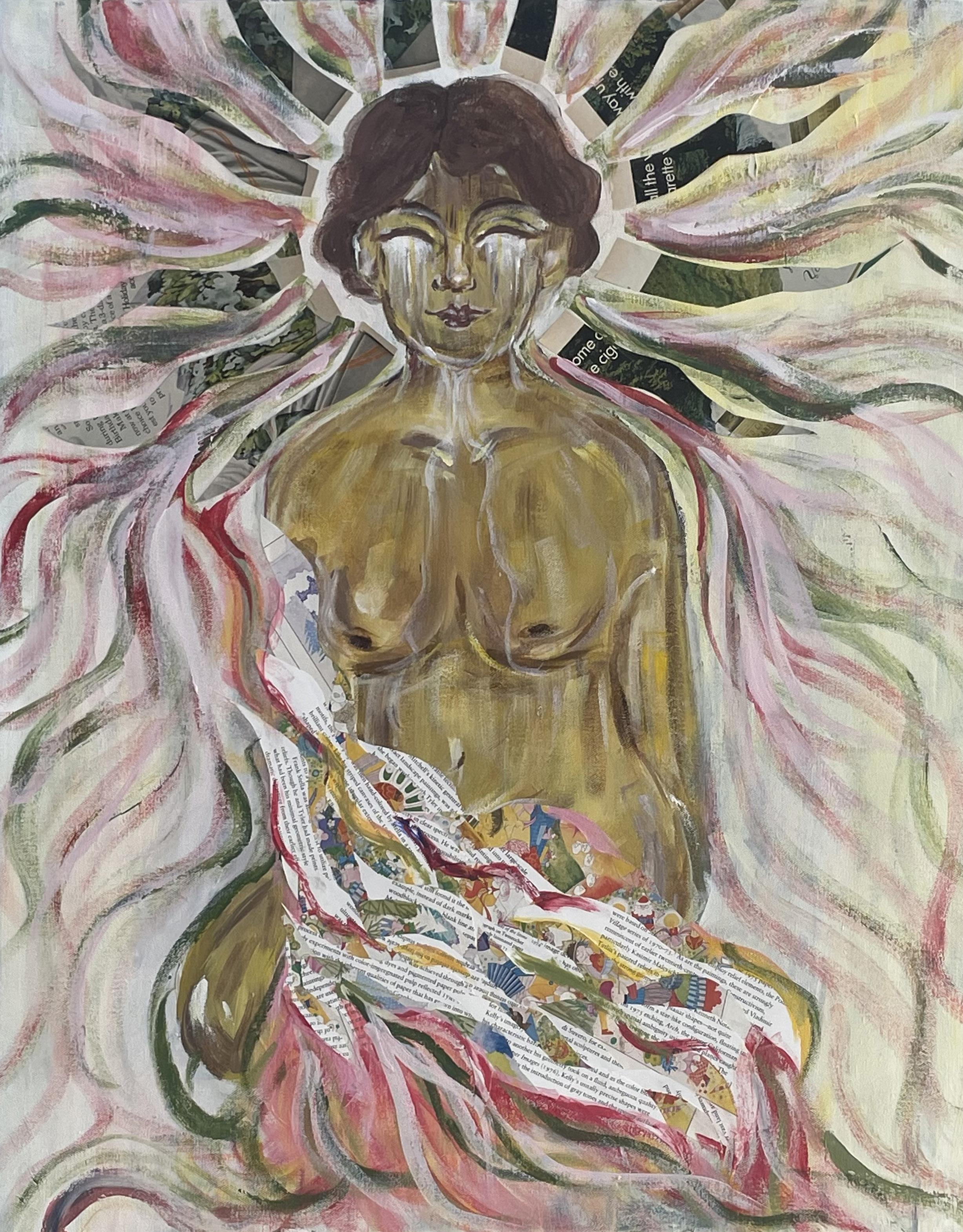
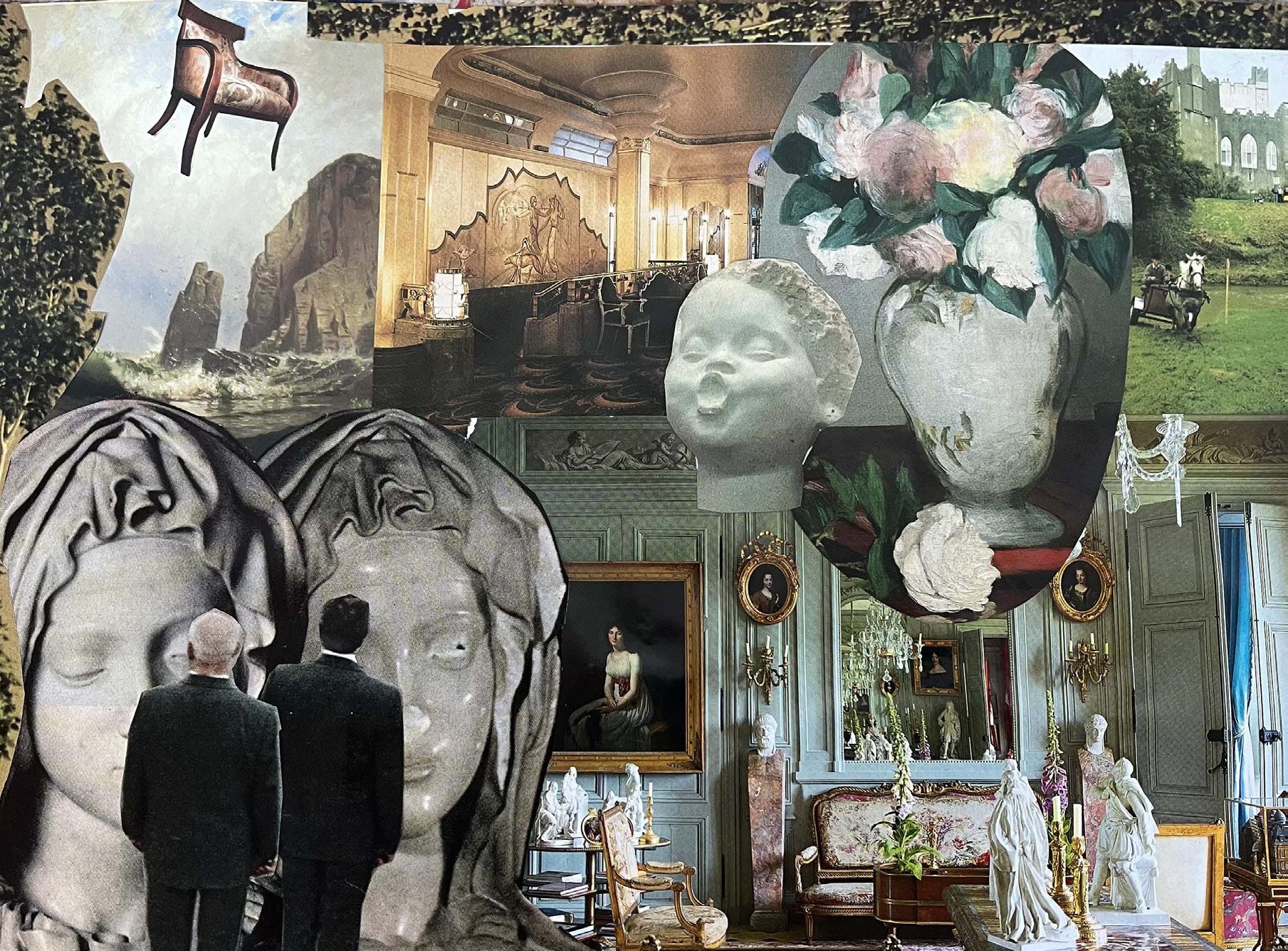
a story, Bennett
Sauer





Once upon a time there was a little wolf pup in its den. This wolf pup was told to go fetch some water from a nearby stream. But the wolf pup’s mother never said anything about hunters.
As the wolf pup set out to fetch the water he came across a fork in the path, not knowing what direction to go he sat there thinking about it. Then out of nowhere a hunter came out of the woods and said “little wolf, what are you doing all by yourself in the woods”. The wolf, having not been warned, said “I’ve been sent to fetch some water, but I don’t know what way will lead me to the river”. The hunter who is planning to kill the wolf said “oh go to the left it will bring you there, i can even walk you there if you would like” not knowing of the hunters plan the wolf said “that would be very helpful”.
The hunter and the wolf then set off to the river with the young unknowing wolf not knowing what was bound to happen. They were walking down the path when they came across a random house and the hunter said “let’s explore”. planning to kill the wolf here, but the wolf was curious as to why the hunter wanted to explore so he kept his guard up. As they entered the house they found a bunch of rotten food and rotting furniture. “This house has probably been here for at least a hundred years,” said the wolf . the hunter wasn’t paying attention as the wolf said this though because he was planning how he would kill the wolf, but the wolf outsmarted him and said “we should get going because i shouldn’t be out to long for my mother may get worried”.
They set out again on the path and even though the hunters plan had not worked there he had some more tricks up his sleeve. They continued on the path until they came across yet another fork in the road and the hunter, having traveled these paths countless
times, took them on the path to a raging river in which he would try to kill the little wolf.
As they were coming up to the river the wolf could hear the raging river ahead and started to get concerned that the hunter had bad intentions. When they were about to get to the river the wolf was starting to get more concerned because the hunter hadn’t said a thing for a while. Worried the hunter would kill him he started thinking of a way to outsmart him. The hunter had a net place in this river for trapping animals that he hunted so he was planning on throwing the wolf in the river and having the net guarantee he won’t escape.
“but how do I distract him?
The wolf had been told about this river though so he knew the hunters plan so he had to start thinking about what he could do to outsmart the hunter. “Maybe I could push him into the river,” the wolf thought to himself, “but how would I distract him?”
The wolf had been lost in his thoughts when all of a sudden he thought of a way to trick the hunter, he would simply just ask the hunter to get him a bucket of water from the raging river and once the hunter set it down for him he would push the hunter into the river and get the hunter with his own trap and he would have the water he had been sent out for.
So once they got to the river the wolf said “since the water is moving so fast could you get me a bucket of water so i don’t get swept up,” the hunter who knew he would have to do this to get the wolf to trust him for said “yes of course” so the hunter grabbed a bucket and scooped up some water, and then as the hunter set the bucket down the wolf pushed him into the river and watched as he was swept down into the river.
The wolf then grabbed the bucket and walked back home feeling accomplished as he had gotten the water and tricked the hunter.
“Maybe I should push him into the river,” the wolf thought to himself,
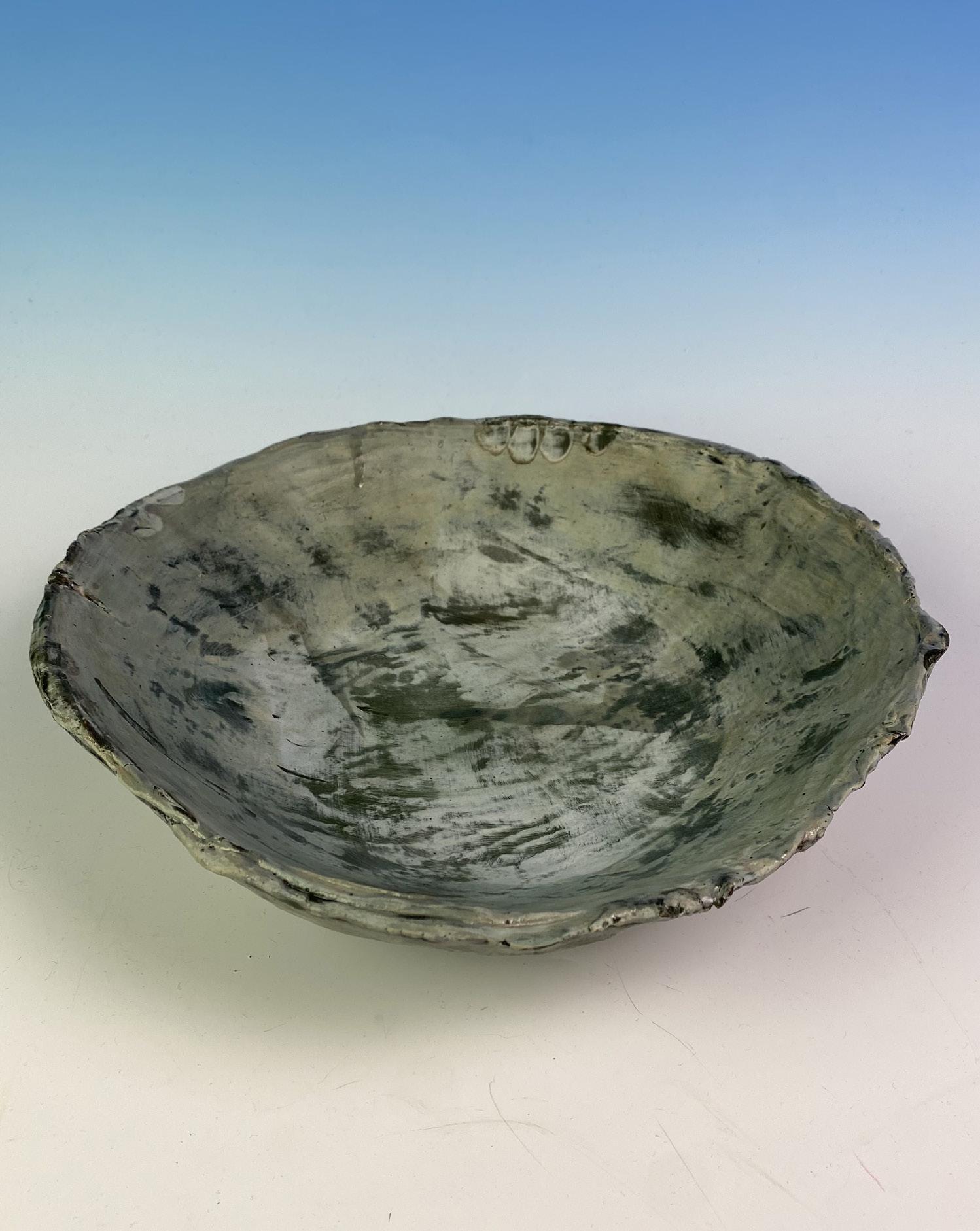
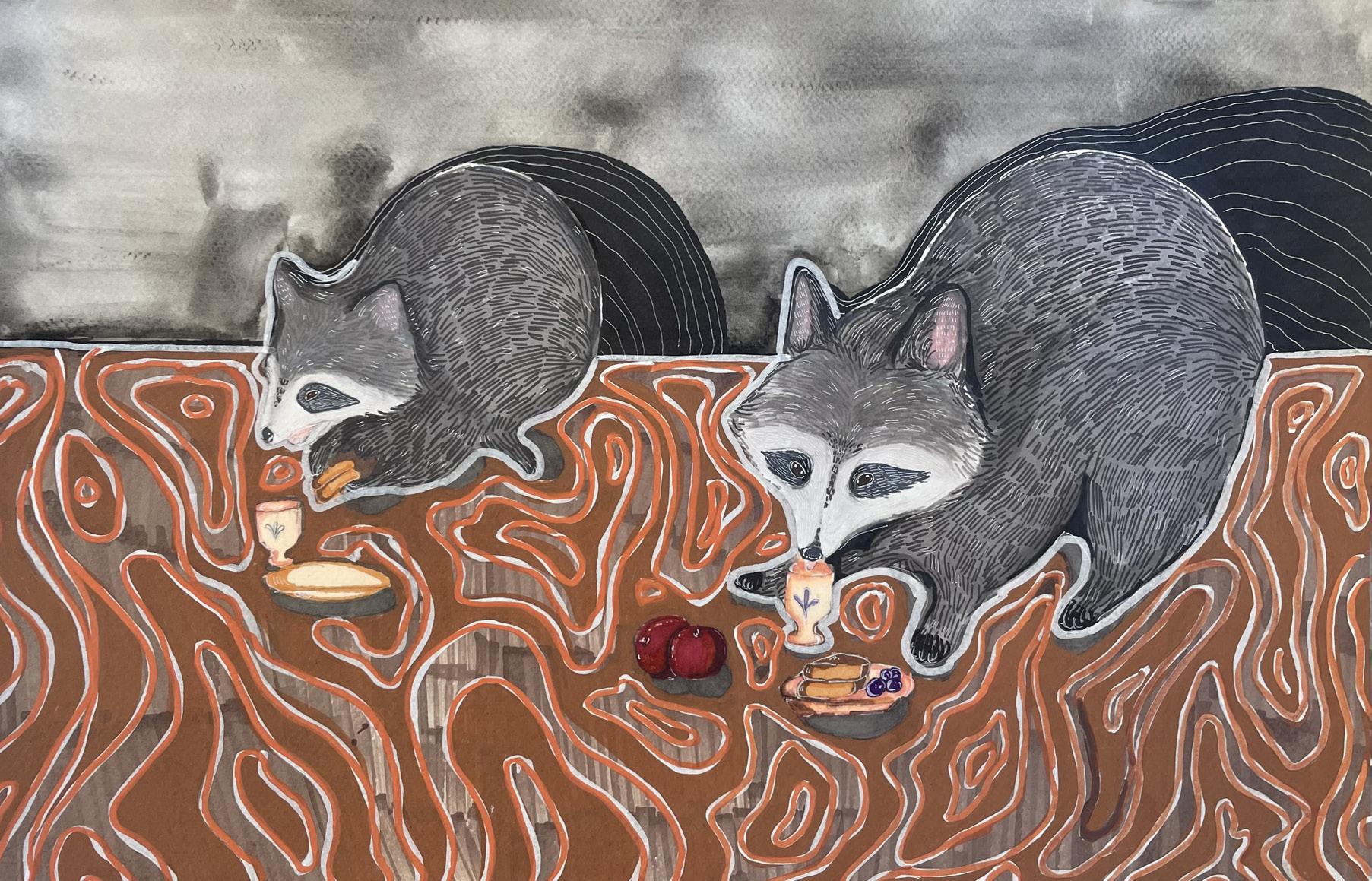
Ablack hole put simply, is a big space vacuum where an unthinkable amount of matter is sucked into a tiny space. On average, black holes have a gravitational force of about 1.6 trillion g’s, or 1.6 trillion times the gravitational force of that on Earth. Objects circling the event horizon are doomed to fall into its invisible trap, yes, invisible. Not only will black holes tear anything that comes into their grip into their smallest subatomic components, but the holes are also invisible due to the fact that not even light can escape their force. Light, rocks, specks of dust, aliens that humans never got to meet, dinosaurs, perhaps, planets, galaxies, years, time: all of it can be found in a black hole.
My cabin is built of concrete and steel. It may look wooden from the outside, but taking a closer look at the structure of the house, it is strung together with big black beams and thick pieces of metal, making it impossible to move. Big gusts of wind push around dangling bristles on pine trees, rain pounds the roof and bombards the wet clay around the base, snow pushes against the paneled sides of the home, but the cabin stands. Spiders build their webs on the dirty paneled glass door because they know they will not be swept away. I walk into the screen porch in the summertime expecting buds of pollen to cover the couch, and in the wintertime, there will be a big blue tarp covering its surface. I’m right every time
“Light, rocks, specks of dust, aliens that humans never got to meet, dinosaurs, perhaps, planets, galaxies, years, time: all of it can be found in a black hole.
because nothing changes because nothing needs to change. On my 11th birthday, I sat on the tan carpet of my dad’s home office, looking down at a picture of myself. The picture was of me when I was five years old, standing and smiling with my dad, and I cried when I looked at that picture. My hands had become bigger, as had my legs and my arms, and my head. My face had become chubbier, not in a cute way anymore, and I realized I was older. For the first time, I became aware that time had passed and I wasn’t as young as I used to be. I realized someday I would be 80 years old, and I wouldn’t have my parents to hold me anymore, and I cried for the loss of people I still had. I cried because time was moving faster than I could think.
Since black holes are invisible, humans can only “see” them by observing the behavior of light, X-rays, and radio waves in the surrounding environment of the hole. We cannot see the actual black hole; however, we can see stars and other galactic objects which may be making contact with the holes. When observing an object nearing a black hole, time will appear frozen because black holes slow time. If a person were thrown into a black hole for one minute (black hole time) and somehow survived, about 1,700,000 years would have passed on Earth.
I cried because time was moving faster than I could think.
When fishing boats pass by my cabin and project their wake onto the shore, the dock my dad installed five years ago sits still in the same spot it has always been, except, of course, in the winter, when it is always moved. We have given up on weeding the growth in the lake because every time we do, the long green plants resist and grow back; maybe nature dislikes change. The fish move when a girl jumps into the water, but they resume their positions once they realize that nothing has changed, and it is the same girl who denies that she has changed, just like them. The fish will stay this way until maybe their sixth birthday when they realize time moves quite fast on Earth, and they wash up to shore, laying on their side. Dinosaurs
felt this way too when the asteroid came barreling, and they realized they had exactly four minutes to say I love you to every friend, family member, and loved one they had ever known. Maybe even aliens on other planets experience this pain of time fleeting, even if a minute their time is 1,700,000 minutes Earth time. How could that possibly ever be enough?
I have always hated my birthday, or for that matter, any day that marked the passage of time. New years, last days of school, family reunions where I could watch my cousin’s babies grow up. Despite the anticipation and excitement that accumulated on the days leading up, I found that whenever the ball dropped or I blew out my birthday candles, an overwhelming sadness would consume my thoughts. The moment was no longer about celebration. It was a reminder that even when I smiled, clocks still ticked, and the world still rotated. I used to wish I could live in a place where time was frozen, and I would never grow up, but I know somehow the time I would have would still, somehow, never be enough.
Eyes don’t always meet eyes. Your hands are warped, like wet wood, and the coolness of the earth doesn’t quite reach you anymore. Blue light. Blue sky. The valley is yawning and swallowing and devouring. It is calling. A buzzing sound rings in your ear.












































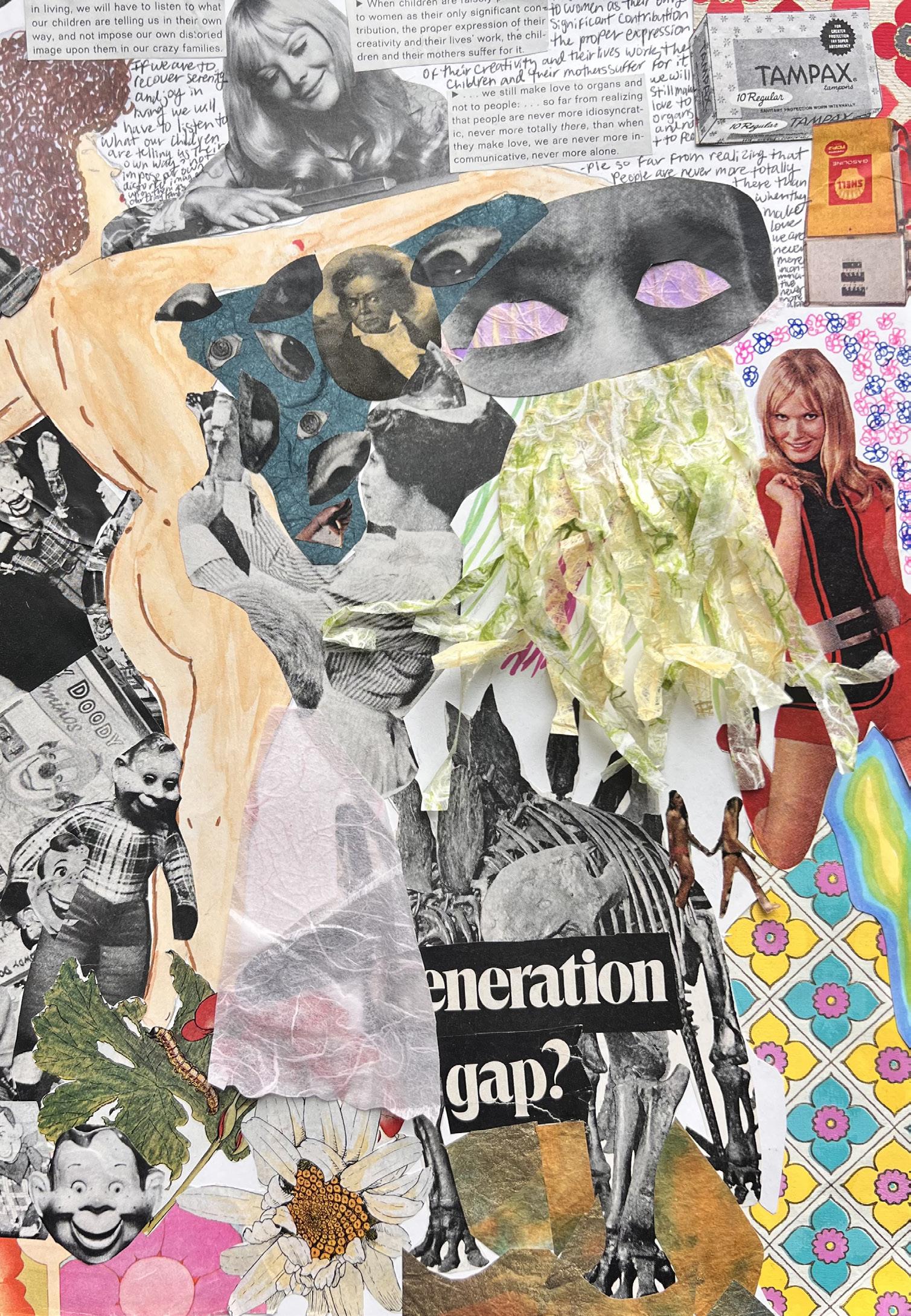
I.WE KNOW PAIN. WE know what it looks like - blood above and beneath the skin, the tightening and folding of the brow. We dedicate words to it: “ouch,” “it hurts like hell,” and so on. In grocery or drug stores, there are dedicated aisles to pain relief medication.
Pain is the message from the flesh to the mind to stop doing whatever it is doing. It is a threat, an expression of desperation. When the flesh feels that it is in danger, it cuts in a place only the mind can feel. The flesh can be overcautious, responding to capsaicin as if it were fire. It hurts the mind because that is as far as it can go. It cannot control itself, can only hope the mind is an agreeable pilot. Sometimes, the mind grows too powerful for the body to handle, or the body does not fear enough, and so people commit suicide.
The flesh is programmed to protect itself after years of evolution when strong flesh meant reproduction, and reproduction meant immortality. The body’s cuts are its cries for mercy, pleas to the mind, its child, its god.
The flesh may be too childish to understand that it walks upon a finite road. That it can never stop, and must reach the end. It may be like human children, thinking itself immortal. It has been cut and bruised and battered and it has healed, how could it ever die? Or perhaps it knows already; it knew before the mind stepped into its cockpit that it could very easily cease to exist. It knows that its efforts only stall the inevitable. It is condemned to a Sisyphean fate: Death stands on either side, so the flesh runs to whoever is farther.
II.THERE IS AN INTERESTING phenomenon in regards to pain, known to songwriters and YA authors and dreamers alike. When the mind, the obstinate, arrogant mind sees a roadblock that it deems fatal, the flesh weeps. The shrieks of a child refused a toy or a meal. The wails of parents who cannot find their children. If you have entertained a love or a pain or a story, you have likely felt the pain I now describe, or have seen it described elsewhere.
Your heart beats. It tries to escape from the confines of your ribcage, up and up it flies, catches in your throat, beats against your teeth like bile. You keep it inside. If it manages to open your jaw, it will stop breathing, and fall down, down into the pitch ocean, heavier than the stone whose weight you
never learned to bear.
You might want to claw at your arms, rip your hair out, beat your white knuckles and scratched palms against the head you detest. One in anger, sadness, and distress often seeks physical pain- wants the mortality of the flesh to distract from the mortality of the mind.
Those whose minds are afflicted by illness are still considered healthy. But when the mind is unwell, the body deteriorates. Some say chronic stress can have similar effects on the body as smoking. The sick mind is contagious, and is too close to the flesh.
HAVE YOU LOOKED AT the sky? Seen Venus in the winter evening light, prayed to her? Have you laid your ear upon a table, the voice of a lover resonating through the aged wood?
None of these things can guarantee you a parent, a partner, a child, a long life. And yet we whoop and yell and smile ear to ear that things are beautiful in the world. Whoever wins the World Cup, however wide the smile of the cashier, whatever colors the sunrise paints as you drive to work, how could that possibly protect us, preserve our DNA? And yet we seek it, and yet we rejoice in it.
In happiness lies the elixir of youth, of life. We live longer when we are happy. For those who can be happy when happiness is not warranted, those who can trick their minds, their hearts, their bones that they are living a life greater than any dream, more vast than any ocean, circumstance itself lies beneath their power. They have cheated Death.
Plutarch, paraphrasing Aristotle, once said that for one to be the master of his own life, he must abstain from pecuniary wealth, so as to not become a slave to his own desires. He did not mention the wealth of joy. The glutton that gorges himself on his own delusions, he who is happier than any reasonable or noble man.
WE HAVE NO CONTROL over time, thus we cannot erase history. Therefore, any action or inaction taken is itself immortalized, and through the records of seconds and sentences an undying being can be born and raised. In this sense, we are all immortal. The “you” who has existed will never die - the decay of the flesh only prevents a newer “you” from being born.
I WAS SMALL AND sitting at my sister’s old desk in her old, dark, and blue bedroom. I sat before a desk dirty with years of crafts and eraser shavings and bent over it, or past it. My hands cradled a warm face and grew cold. My nails pressed against the skull that protected the brain that harbored the mind that sinned and laid cities to waste.
Something entered my ears, and something exited. My hands could not cover both my eyes and ears, so they shifted back, and I squeezed my eyelids shut to compensate.
Somehow, I was beckoned to leave the trench of my desk’s shadow. I lifted my head and saw before me the shadow of god.
Some say that Hades, first son of Cronus, the last son of Ouranos, when he went to war against his father, was gifted a helm by the Cyclopes, his uncles, cast into hell for their ugliness. This helm could make him invisible, or could make the sight of him terrifying as death was to mortals. Perhaps it was he who stood before me in the dusty mirror, for one glance was all it took to revive the coward living in my veins and heart.
Its stance was wide. Hands, life-giving hands, were placed upon its hips, the crooks of its elbows forming the lids of eyes that saw all I was and all I would be. Upon its neck sat a dying star. I saw the star and its gaze seeped into the flesh that faced it faster than I could ever run, faster than I ever ran before. I saw the edge of the path before me.
She was worried. I see it after hearing it from her, that she was only worried that I was stressed and that it was late at night and I would be tired in the morning. But for that child in the dark plaster box, there was no graver sin than a sinner overstepping its bounds and disappointing its mother.
I have heard of an ancient Greek figure called the pharmakos. It would sit alongside fruit, jars of honey, and other offerings, while the rest of the village set it aflame and prayed that with the ugliest, basest, lowest thing cast out, the good people would be relieved of their disease. The town could be saved with the extermination of one.
I wished to set myself aflame, sacrifice myself to the pyre and smoke so that my mother could be healthy and happy and live forever.
I now know that the pharmakos is decided by the collective. One who is base cannot reasonably call himself base. An act made by the cursed cannot bless anyone.
And so I shall repent by being happy; I shall feast on my own laughter, glory in the fortunes of circumstance, learn to love the cold dirt beneath. I cannot rely on my future self to live, so I will cradle my mothers’ shoulders until she is gone, and maybe in the end I can be satisfied with the god that I created. ai
1)
Humans have spent over 300 thousand years on Earth. Comparatively, however, this time has been brief.
Humans spend around one-third of their life sleeping and part of that time dreaming. A dream lasts only about five to twenty minutes, but to the unconscious person, it can feel like hours. Why dreams occur is a mystery; however, I believe that what we see while asleep reveals our underlying fears. Too often, I find myself awake at night, eyes wide open, the clock reading “4:03,” as I lay in my bed shrouded in darkness, too hot or too cold to sleep, in the wake of a dream haunting me about losing track of time and then missing a test or deadline. Dreams bend our perception of time. When I am able to remember what I dreamt, it feels like I spent hours in that dream state. When I can’t remember my dream, it feels as if my eyes close in a blink, even when I actually reopen them nine hours later. While few memories are retained from the sleep state, it is during sleep that our brains store, sort, and dispose of various information. In some cultures, dreams have been imbued with religious significance. Many believe that dreams are ways higher powers communicate with individuals, and have connected messages from dreams to our purpose on Earth.
2)
My mom always tells me I grew up too fast. For her, it was like yesterday that she could carry me with one arm. I believe that this is why she wants me to take a gap year: so she can spend more time with me and so I can go to a Frenchspeaking country to improve my language skills, just as my brother did during his gap year. I’ve spent time at French schools, working towards fluency, and have not always enjoyed myself. The summer when I was 11 years old, I went to Quebec with my mother, uncle, and brother Eli. We stayed in the old part of the city, and each day would drive over to the newer part, where Eli and I took French classes at
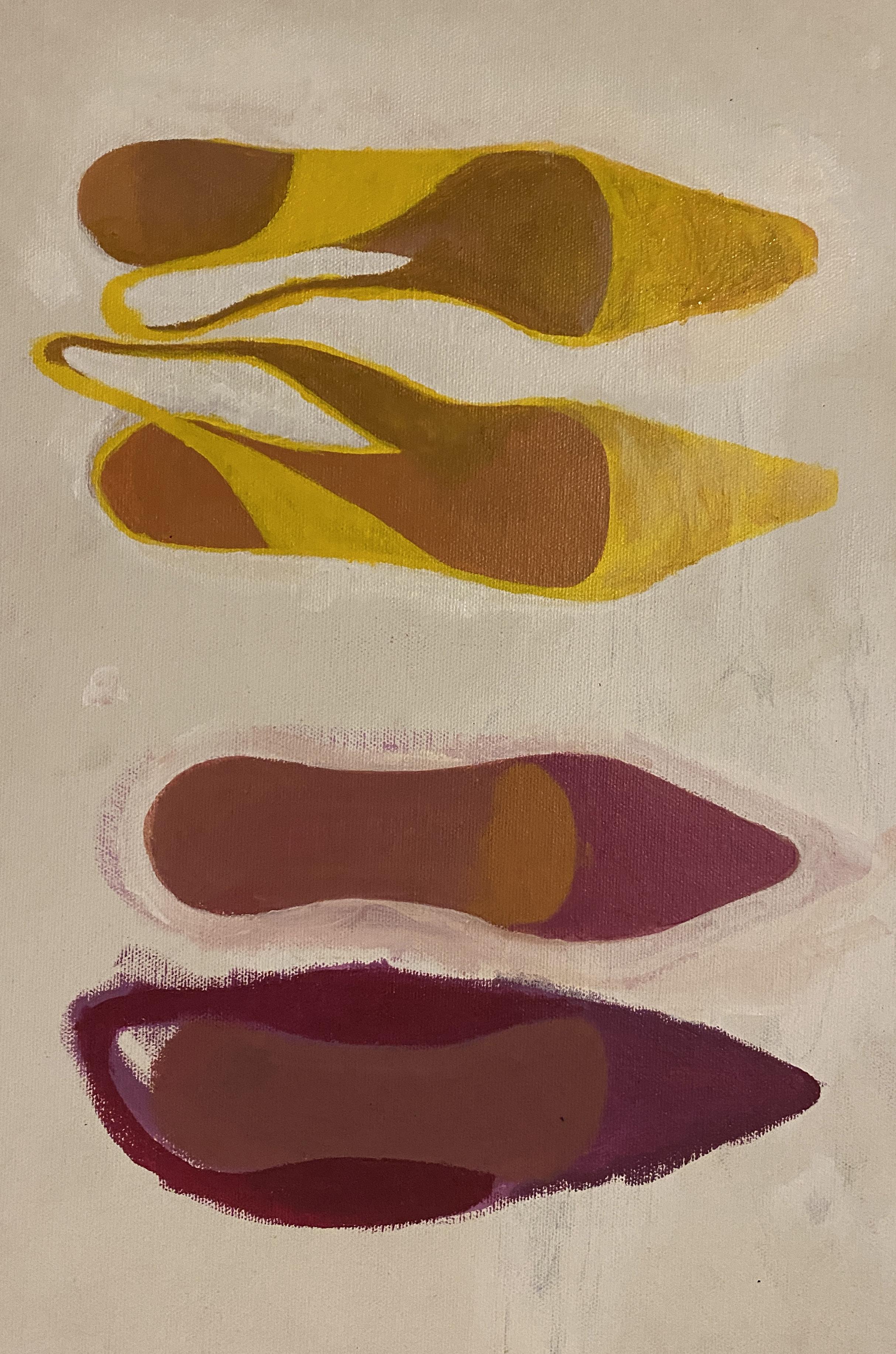
a high school. I was placed at a higher level than what I knew well and struggled to understand most of the conjugations. The teacher would randomly call on students for an answer, and I would sit in my sweat, trying to make myself as small as possible, waiting for what felt like forever, hoping that her eyes would not shift onto me and ask me for an answer, embarrassing myself in front of all the older students. I couldn’t wait to get back to our apartment each day, watching the clock, the minute hand moving in slow motion as if it were a dream. After two weeks, it was over. No more classes and no more French. We headed West through Ottawa and Toronto, back to the U.S., and through the Midwest. The next thing I remember, thinking about that time in my life, was the end of summer, the start of school. It was as if emptiness replaced all the time in between.
Humans have spent over 300 thousand years on Earth. Comparatively, however, this time has been brief. If you were to measure the history of Earth on your arm, humans have existed for only the white part of freshly cut nails. On this timeline, our individual lives are smaller than atoms. To imagine that our lives begin and end in a blink of time and that we are specks on a tiny planet, in a tiny solar system, in one of the trillions of galaxies, has led to countless existential crises. I like to take comfort in this notion. The days will go by slowly, and the years quickly. We may grow old, unable to stop the silent ticking of time, leading us to the one certainty in life: the end of it; however, I know that this is how all in life must go. Without death, could there ever be life? For years, I’ve held onto the quote by Ferris Bueller: “Life moves pretty fast. If you don’t stop and look around once in a while, you could miss it.” I know that one day I will wake up for the last time, my skin wrinkled, spotted, and hanging loosely, my hair as white as snow, my body weak and frail, my joints stiff like a broken machine, and I’ll wonder where the time has gone.
It was as if emptiness replaced all the time in between.
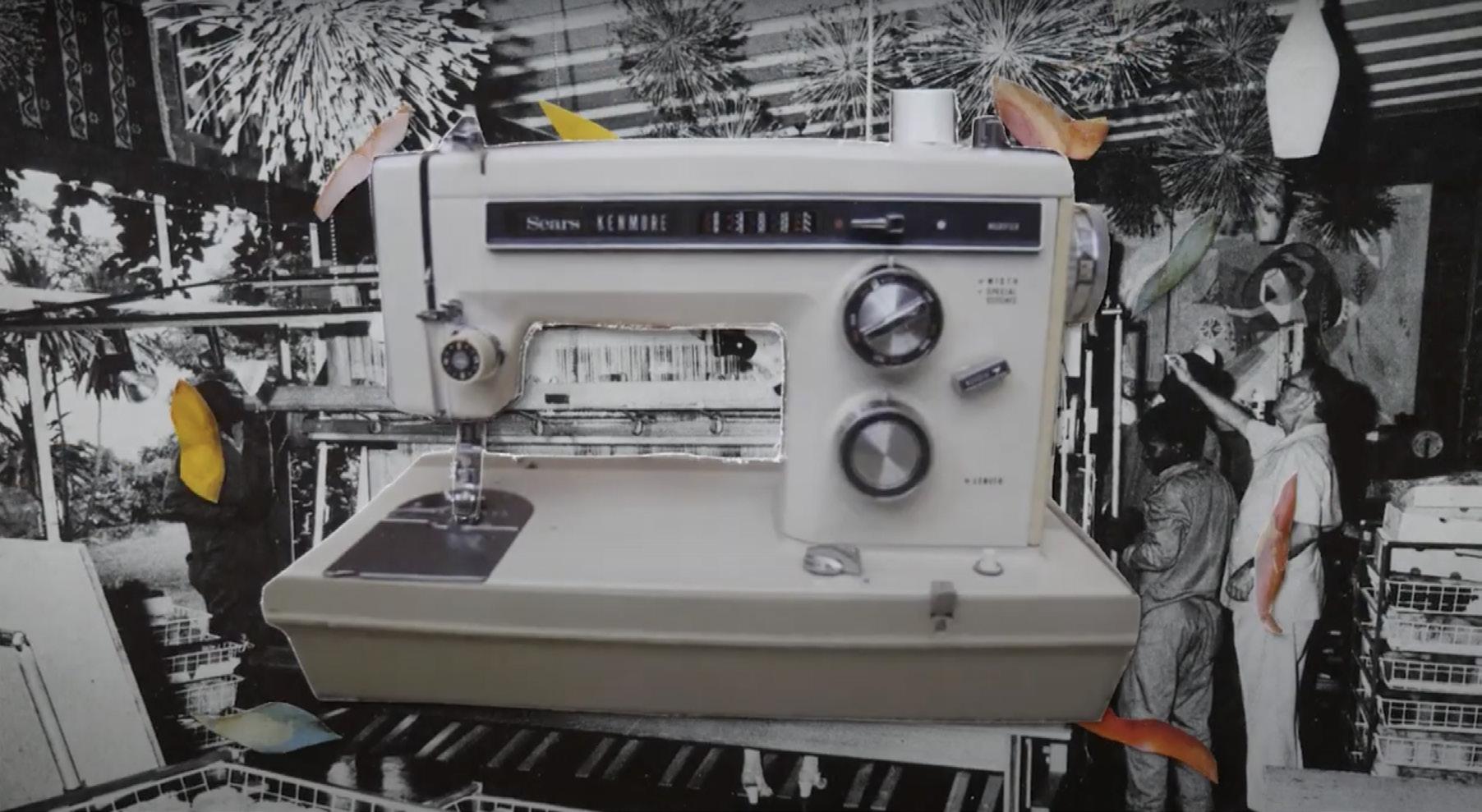

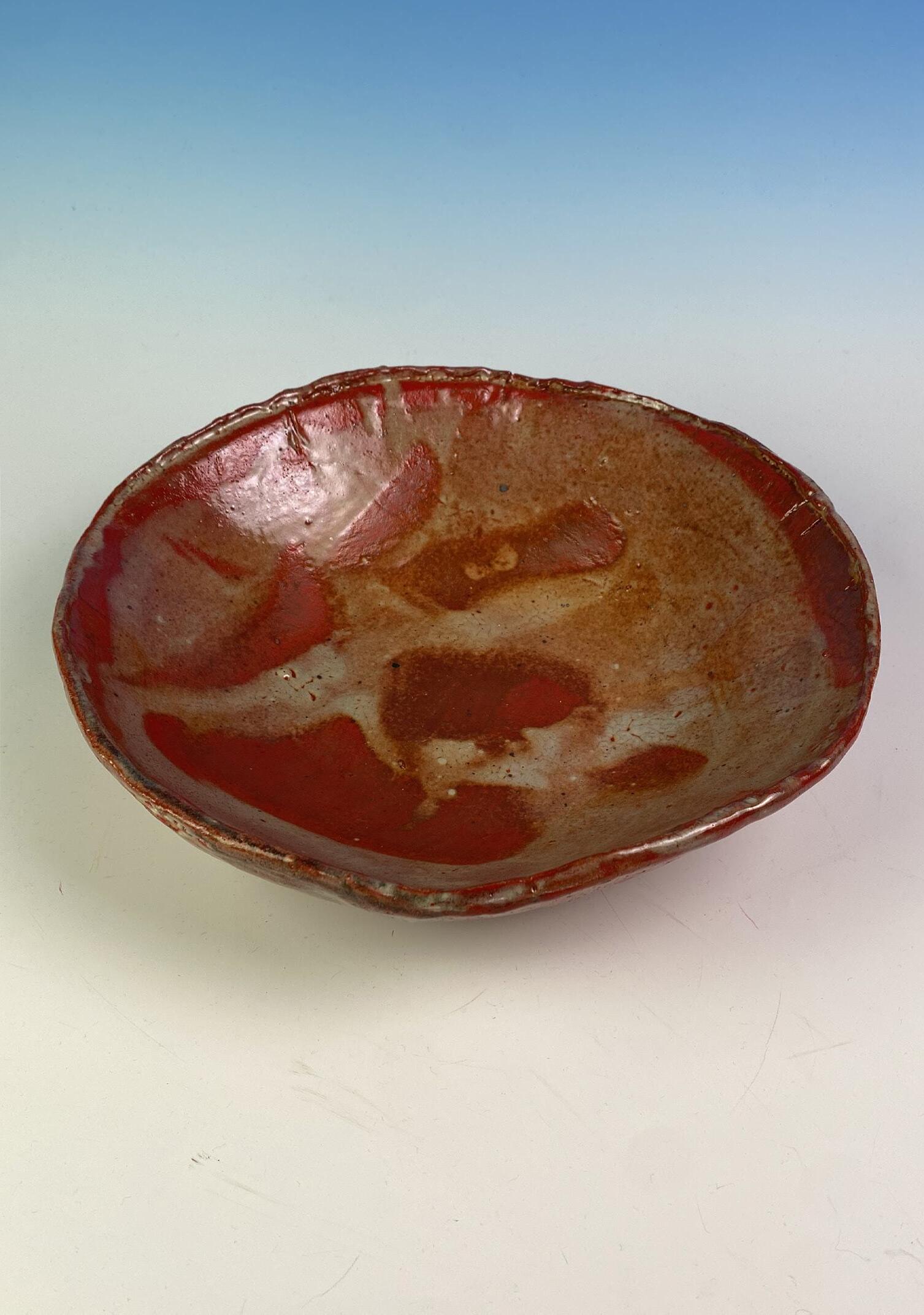
a story, Elzie Bieganek
Once upon a time, during the month of August 2012, there was a 21-year-old man. His name was Arthur, and he lived in a small rundown town. Where he lives the trees are sparse and the once lively neighborhoods are not so alive anymore. Arthur is a dropout college student who lives on his own. He has been waiting and waiting for someone to show up that’ll change his life forever but they haven’t come yet.
One cloudy day Arthur decides to take a walk around his neighborhood. Arthur gets up out of bed and looks in his bathroom mirror. His hair looks like an animal had burrowed inside it, and his clothes had a bad odor to them, but he didn’t care so he left. Every house looks the same on these streets. Every house is 2 levels with a pointed roof. No one ever is out, until now, that is.
Arthur spots the most beautiful thing he’s seen in years. He can’t believe his eyes as this ray of sunshine walks toward him. Her eyes glitter blue across the drowsy morning, and her long red hair blows elegantly in the wind.
Arthur, without thinking, goes up to the girl and says, “Good morning!”
She gives him this odd, slightly uncomfortable, smile and says back “Hello. Is there something I can help you with?”
Immediately Arthur’s heart starts pumping quickly and he can’t think straight. The girl before him has pale skin, and she is wearing leggings and a quarter-zip sweatshirt. Her hair is the color of faded marigolds, and her nails are painted lavender.
He blurts “No! I just saw you walking down the sidewalk and thought to myself how gorgeous you look, and then nothing made more sense but to come over here and ask you something.”
She just stared blankly at him. “
“Would you go out with me?” asks Arthur. The girl laughs hysterically almost causing her sunglasses to fall off her head.
“I’m sorry but I have no idea who you are,” she says letting out a few more giggles.
“Oh right duh,” Arthur says embarrassment settling over his cheeks. He just remembered he hasn’t showered in days, so as this gorgeous girl stands before him all put together he is standing before her wearing the same clothes he’s been wearing for a week. He pushes his long tangled bangs out of his face and tucks his long curls behind his ears as he says “My name is Arthur I live a couple of houses down that way” he points at an old ivy-plated house with worn-out blue shutters, “There now you know me.”
The girl’s smile slowly fades back to a settled resting face. She gives the poor man a look of pity and says, “You know what Arthur, sure I will go on a date with you.”
Arthur invites the girl over to his house and as they enter Arthur turns on the lights. There is pet fur coating everything, there are books thrown on the floor. Dirt piles in random corners and nooks, the place is a mess.
The girl darts her eyes around the place and a disgusted look creeps over her face quickly. She is already regretting coming over to Arthur’s house. She is frightened when he turns to face her, for she hadn’t noticed how ugly he truly is.
sorry,
“I think I’ve made a mistake -- I have to go,” the girl says.
“No please don’t go! You are the most beautiful thing I’ve ever seen, so please stay here with me forever,” Arthur pleads.
“I am not a thing, Arthur, I am a person, and my name is Calliope.”
Calliope’s feet fumble as she paces, her eyes darting to the door.
“Look Arthur I truly have to go,” Calliope says.
“Ok,” says Arthur, and even though he’s absolutely heartbroken he manages to form a small goodbye smile for her.
Arthur’s smile reaches Calliope and she feels something bloom inside her, but there have been so many weird things happening today that she brushes the feeling away and leaves Arthur’s home. Calliope, now free from Arthur, walks back down the sidewalk she and he had been on just a mere while ago. She thinks to herself
“I’m
but I have no idea who you are,” she says, letting out a few more giggles.
how grateful she is that she escaped from that beast’s grip, but she also can’t stop thinking about his smile. She feels as though when Arthur smiled his ugliness disappeared, and a truly genuine human was behind all that creepiness.
The next day Calliope wakes up and still can’t get Arthur off her mind. Calliope decides that enough is enough, so she gets out of bed throws on her clothes from yesterday, and walks out her door. She makes her way back down the familiar sidewalks and finds Arthur’s ivy coated house with blue shutters. Calliope steps up to his door and, with almost no hesitation knocks.
Arthur answers a second later shocked to see what stood in front of him.
“Calliope? What are you doing here? I thought you wanted nothing to do with me,” Arthur says still half asleep.
“Arthur” Calliope starts, “I can’t stop thinking about you, and though I can never see myself dating you maybe we could be friends?”
Arthur takes a moment but then answers, “I would love nothing more than to date you Calliope, but I also want to take what I can get. If what you want to be is friends then that is what I want as well.”
Arthur flashes his smile again and Calliope knows this was the right thing to do. She smiles right back at him, and as Arthur opens his door, for the second time that week, for her she has absolutely no hesitation and walks right in.
Calliope saw through Arthur’s flaws and found the genuine soul behind his ugliness. She found the true Arthur.
The sun comes out, and the trees seem a little less droopy.
Birds chirp over Arthur’s house. Everything has this new glow to it, something it never had before.
Everything felt right.
ai
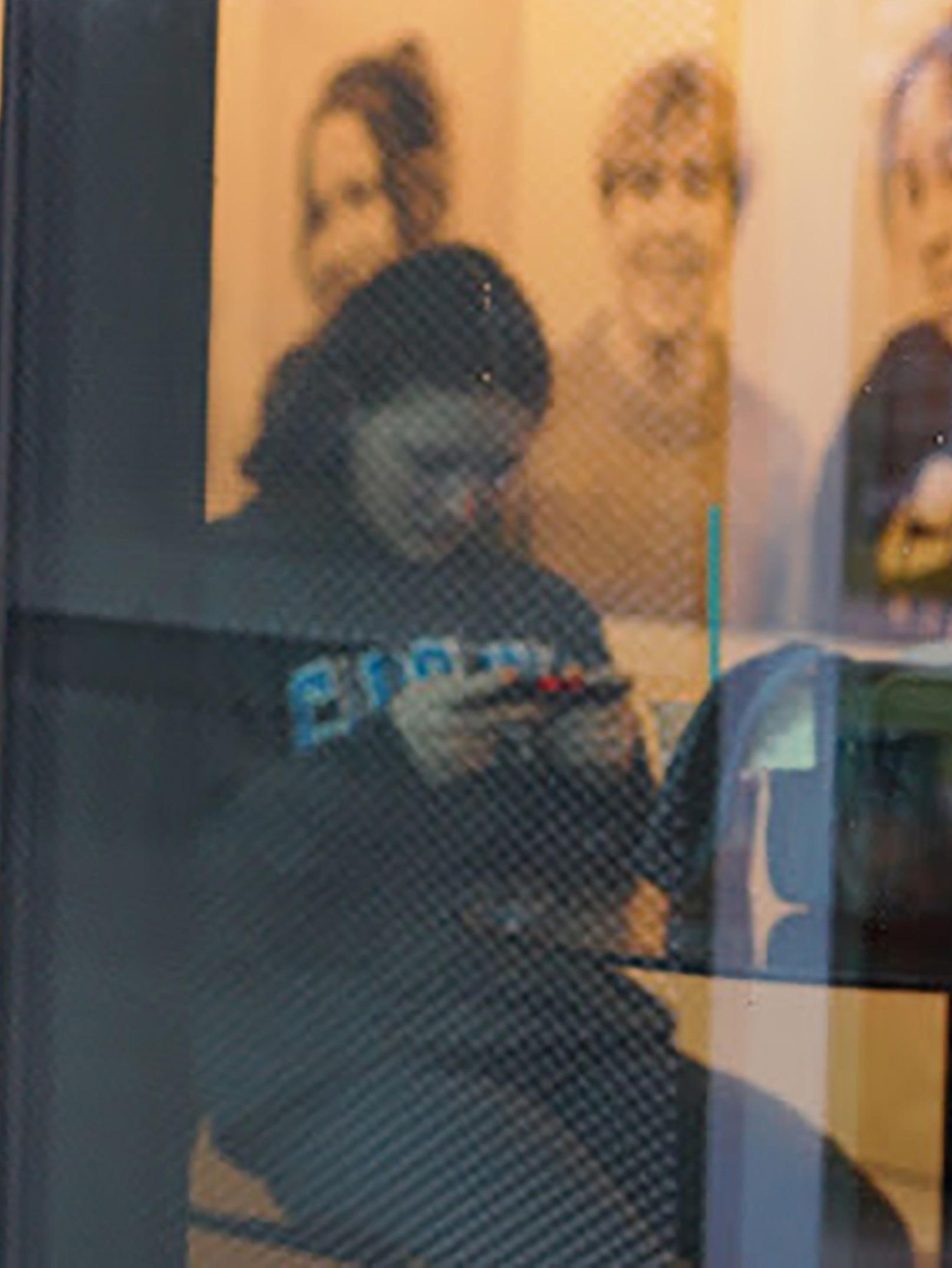
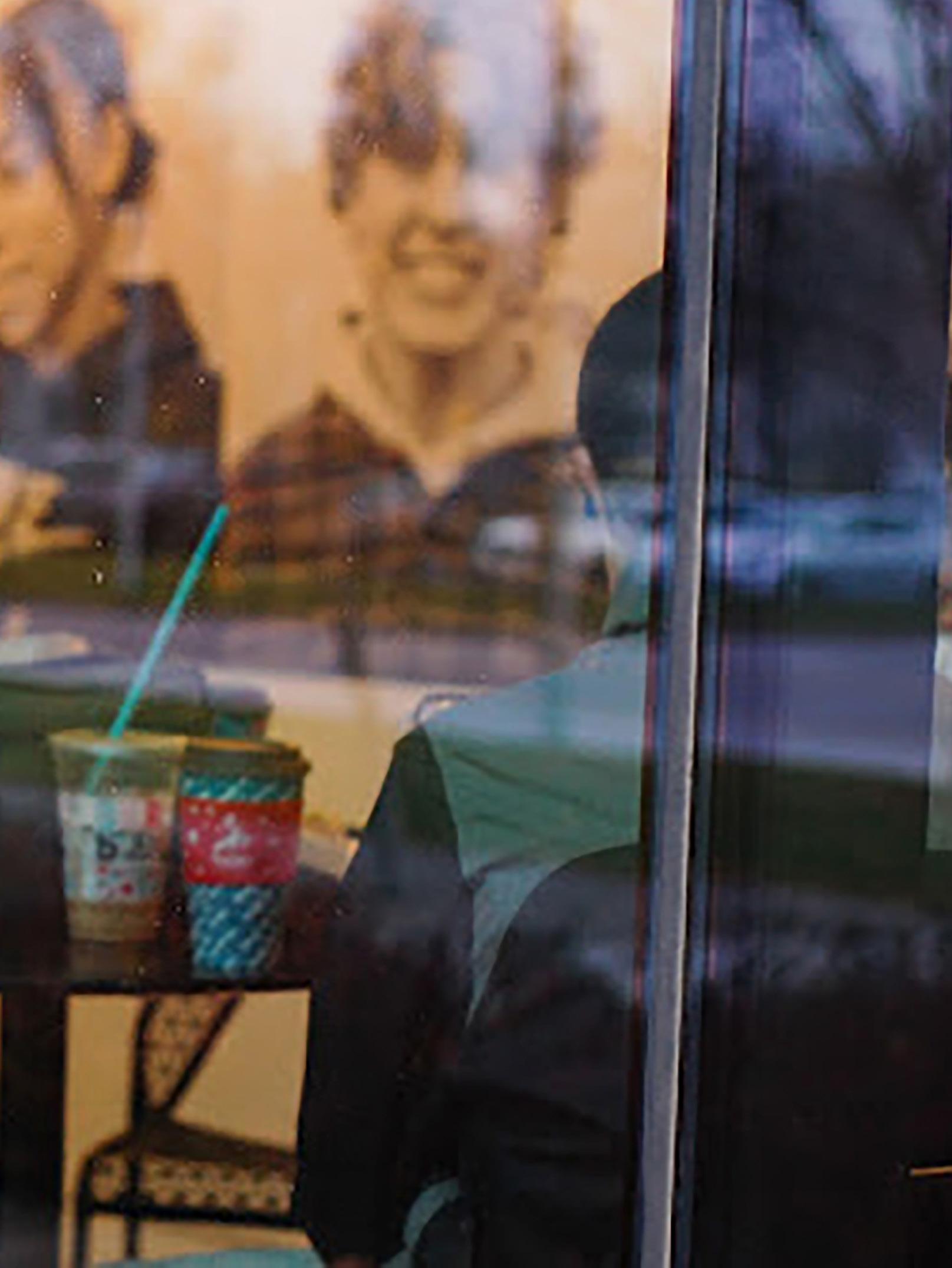 UNTITLED // photography (8.5” x 11”), Yassin Mokbel p. 65
UNTITLED // photography (8.5” x 11”), Yassin Mokbel p. 65
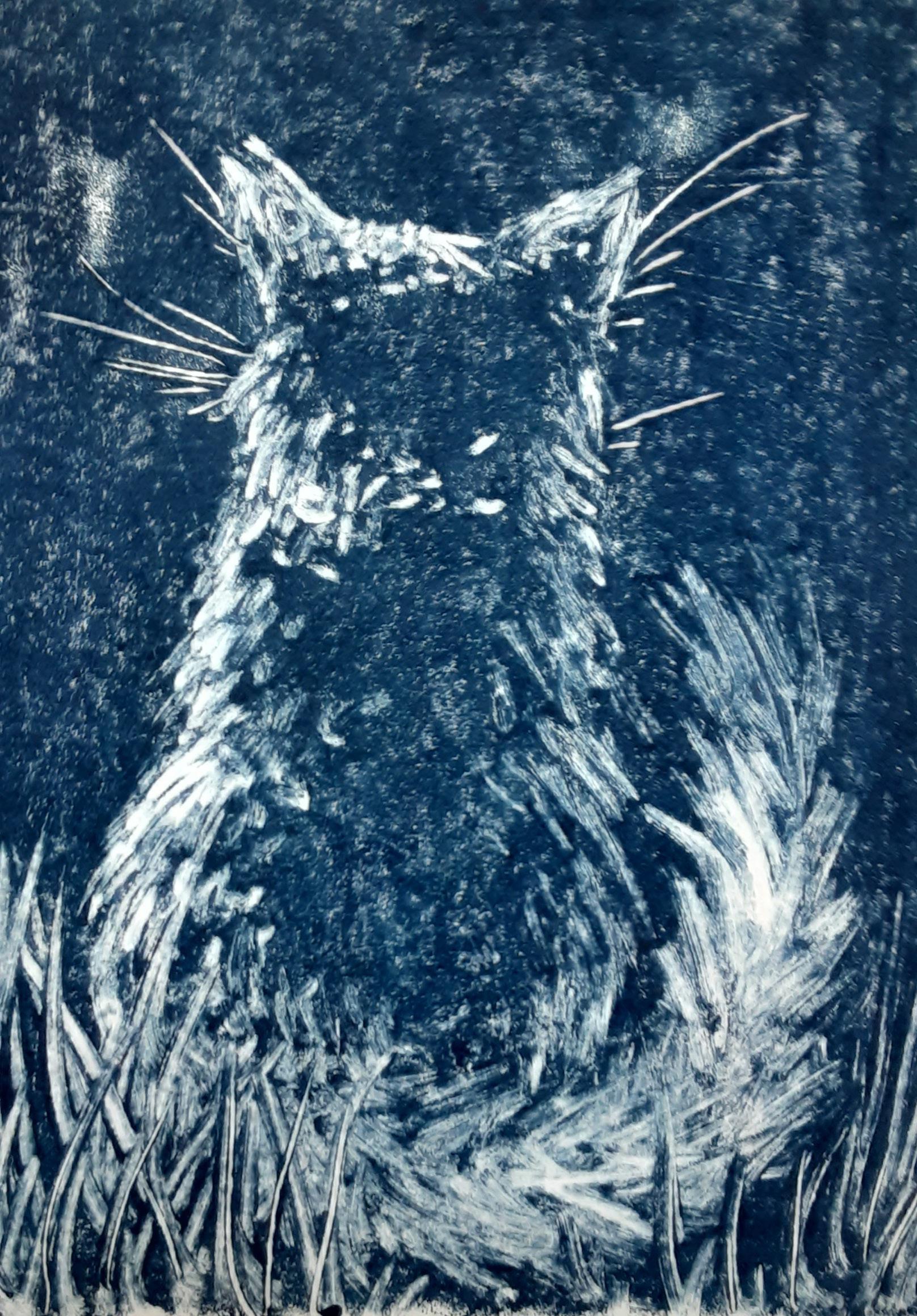


 by Clea Gaïtas Sur
by Clea Gaïtas Sur
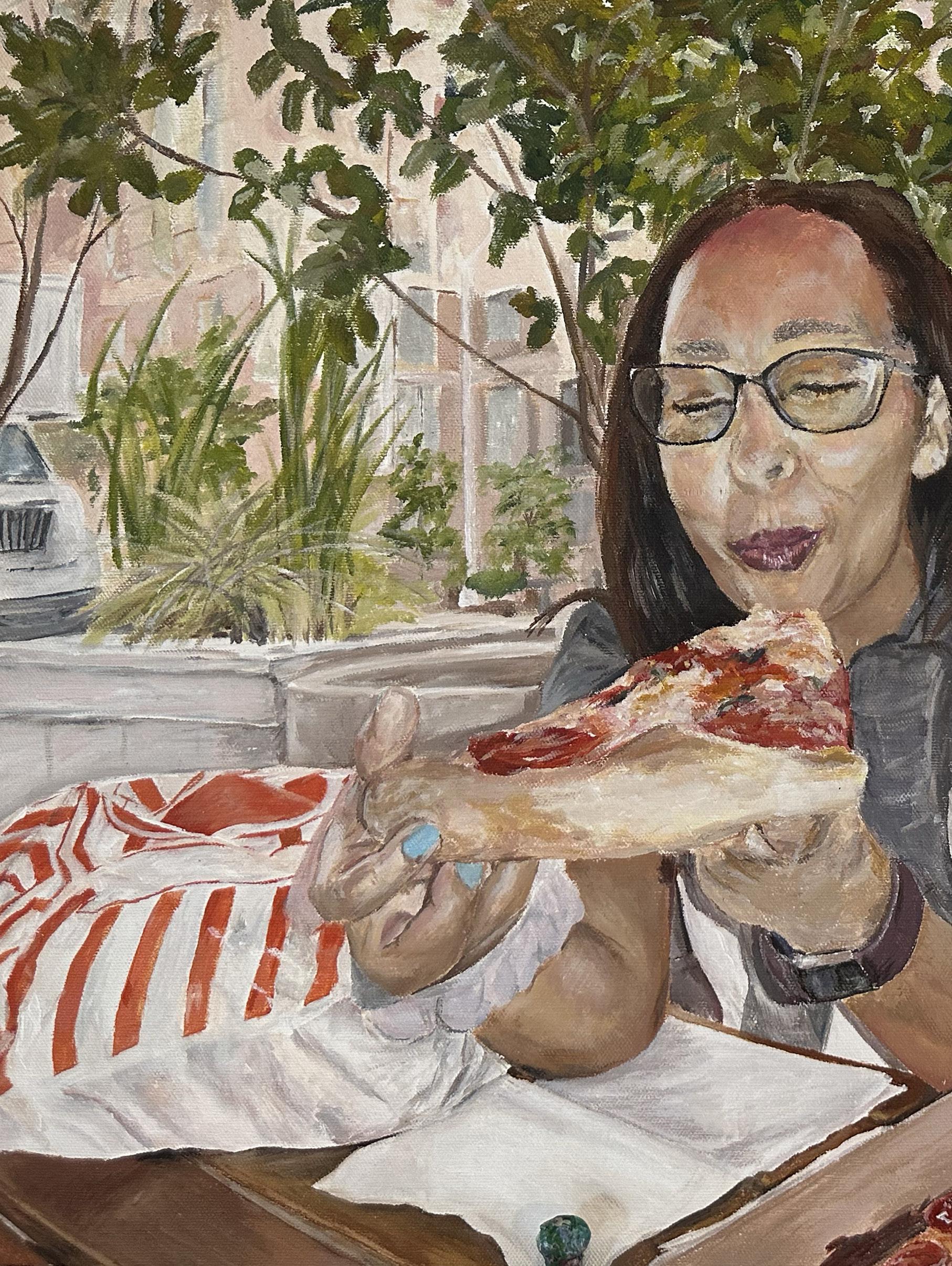

a story, Kate Hanf
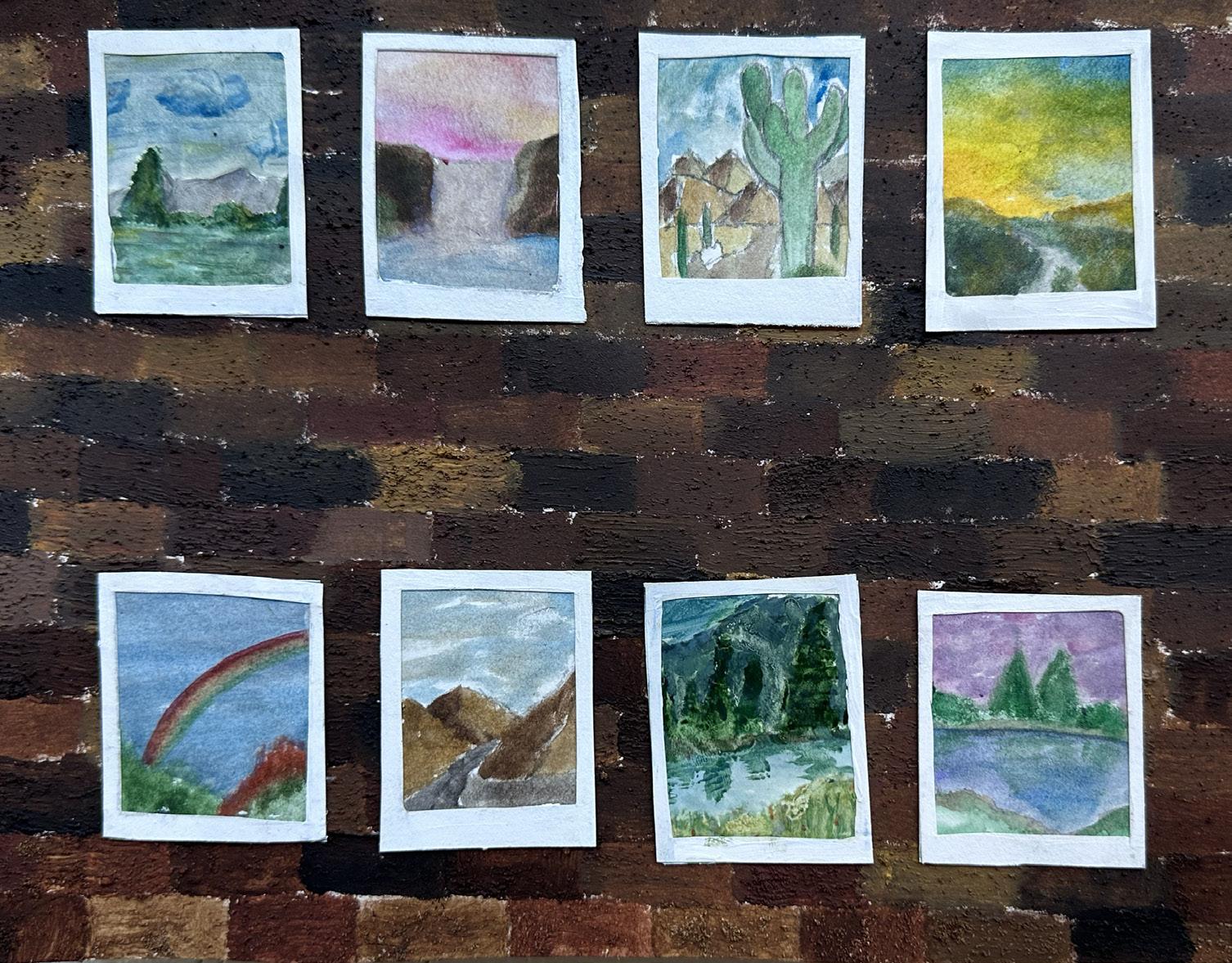
Every tree in New York City is a gem in its own right, each one unique and beautiful, and affectionate. From a distance across the river, New York City looks like just another small city with a few skyscrapers. Once you’re in it, the city embraces you with the pulse of people, the scent of trash, and the gentle reminders of movement from underneath. But beyond the bustling masses of people and shiny, metallic buildings as far as the eye can see, the luscious trees of the city are the silent heroes that keep the city able to sustain its lifestyle. You can walk a few blocks in New York and not see a single tree, yearning for something real to hold onto, an emerald green leaf, a lone trunk, a desperate root system. Some blocks only fashion a few petite trees standing their ground around the intrusive landscape. But the truly breathtaking parts of New York are the parks, specifically Central Park. Like the
p. 70
MIXED MEDIA PAINTING painting (8.5” x 11”), Scarlett Gibsonmitochondria is the powerhouse of the cell, the trees of Central Park are the powerhouse of New York; purifying the air from the ever-constant pollution, supporting ecosystems of other plants and animals, and offering nature in one of the most unnatural places on earth. All friends are a partnership, a balance with each other. Friends are placed in your life with a purpose. At some points, you will have many friends. Other times there will only be a few. But they all come and go as needed to help you flourish. The density of the trees fluctuates, but their presence, their love, and their kindness never waver.
Crabapple trees line the divide between the middle school and the concrete playground area. Though it’s less of a playground and more of an extended concrete basketball court. The trees retain their young, naive demeanor all year round with wimpy grayish-brown structures. The crimson color of the Crabapple tree berries seduces birds, their chemicals causing them to become intoxicated. Yet the birds still come back for more, the red wine berries flirting with the birds, making them incapable of seeing the problems right in front of them. I didn’t understand the depth, the risks of loving a boy. Or maybe just the difference between lust and love. This was the place, right next to these charming, complicated Crabapple trees and the forlorn bike racks, in front of all of my classmates and teachers, where I confessed my feelings for a boy. And this same place was where he broke up with me six months later. I didn’t know what love for a boy was because I was still a girl that didn’t love herself. The trees remained unchanged in their juvenile, coy state, ignorant of time, and I, too, would take years to fully grow up from that seventh-grade girl, completely and utterly infatuated with love for a boy.
Spanish moss trees. They cast a mystical, earthy aurora over the town of Savannah, sheltering all of the squares beneath their web. The squares float in moats of flowering bushes and circular benches, watched over by perched colonial homes. Each square accompanies a slightly different variation of the Spanish moss tree, some with lighter moss and some with darker, more rugged bark. The trees bend and melt towards the ground and sky simultaneously. But they cannot exist and evolve without their family. Their branches, moss, the essence of their beings, belong to interlacing their fingers with their immediate family to form a canopy over Savannah. The Spanish moss trees permeate a thick scent of decaying flowers, unique in the nose of the beholder. They die if they’re polluted by their surrounding air, external forces rotting their fragile existence and delicate family ties. They look soft and innocent, yet upon touch, they leave behind a trace of themselves on the skin as a rash. Sometimes it’s best not to mess with a close-knit family, where oblivion can sting. Every Spanish moss tree needs to physically connect with another tree. The trees die if they don’t live intertwined. Their true purpose is to hold on to one another, support one another, and never let go. ai
we wane and wax the sun rises and falls running away from the moon the world holds us tight sometimes so tight i feel like i can’t breath but at the same time, it’s all so far out the sky is so big sometimes i get lost in the vastness of it all the stars are intoxicating the moon hides herself she is trapped in her own life waiting for the pursuit of happiness and light but it never seems to come she is drowning in the mundane every day is the same there are no magical moments where we touch the sky the illusion of hope is like a drug that seems all too addictive why not be enthralled?
sucked into the abyss
it’s like i can’t touch the sky because it’s on fire i hide, like the moon, from this empty life, just trying to fall asleep before i fall apart but what if for just a moment i could close my eyes and find what i was looking for i could dance to the music in my head live in candid moments find the magic in everything around me runaway to the world of dancing, forehead kisses, art, music stars the vibrancy of being the sky isn’t on fire at all, it’s just the sunset
i’m so close i can touch it
i can find the beauty in the mundane
in the broken world, broken people, broken souls i open my eyes the stars are dancing i tiptoe on the fragility fiery sky holding tight to the moments where i can see when the fire is actually a sunset and it’s not always a sunset, sometimes it is fire but it’s ok we have to be empty to feel full again as the moon goes through phases we do too and when the emptiness holds me so tight i can’t breathe i remember the moments that are full and i cling to those moments the lovely mundane it makes it all worth it

story
, Amalia LagunaThe lake is completely empty. Well, perhaps lake is an overstatement. Pond is probably more accurate. The water is murky, the silt that makes its foundation never quite settles. I would come here with my grandmother when I was a child. It’s perhaps disappointing, some would say, that I never grew out and away of my hometown. It’s not a feeling of familiarity that has kept me here all these years, and certainly not the people. There is a slight sleepiness, a lack of expectation I’ve created for myself, that weighs me down.
There were fish when I was young. Turtles, too. My grandmother shrieked of salmonella when I picked one up and brought it to show her. She clamored yet louder when I waded into the water; to put the turtle on a rock with its friends, I would explain to her later, on a cold walk home, between her worried fussing of tapeworms and amoebas and pulling on my already red ear, urging me to walk faster so the neighbors wouldn’t see me soaking wet. I couldn’t tell you this story if my life hung in the balance, so long gone from my memory it lies.
But I left town for university, and I left the lake. I spent my days in the library, class time with my nose in some book or another, sheltered behind the student-athletes who only attended in a vain attempt to launch an athletic career. My professors, if you were to ask them of me, would mumble something incoherent of passing grades and attendance to the bare minimum of the syllabus. After my four years, I took my diploma in general mathematics and left behind the crowd of crying parents without looking for my own, my cap slipping off my head as I wandered aimlessly away, landing in dusty ground, to be strode over by my peers who walked, warded, by proud, smiling parents.
I returned to my town. I strain my eyes in front of an overly bright computer for a company located two-thousand-threehundred-and-then-some miles away. The work is mindless, repetitive. I eat out once a week, every nice restaurant within a reasonable distance on a rotating schedule. I don’t answer the
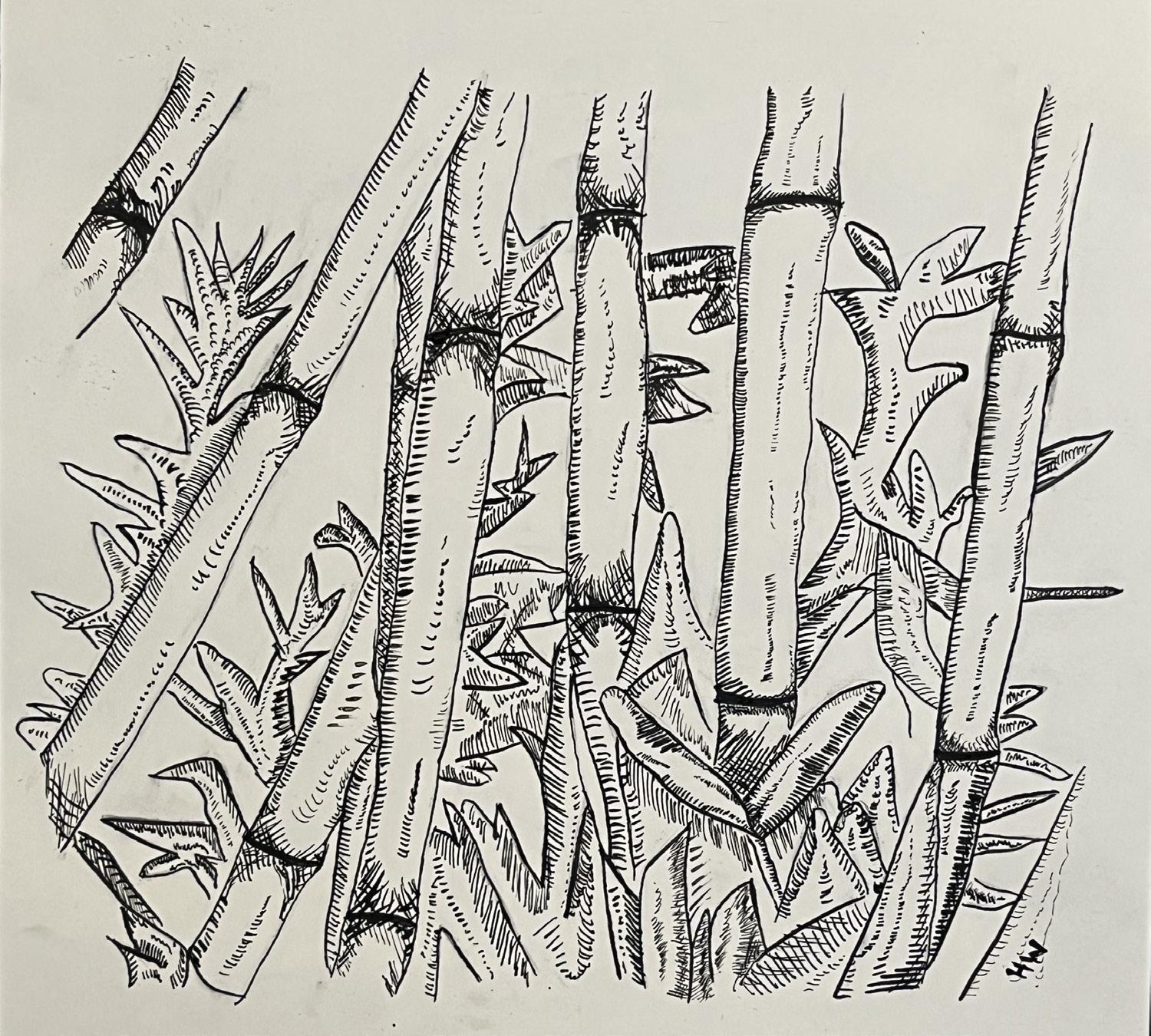
phone when it rings, the insistent chiming on G-natural so grating I no longer hear it. My hair is trimmed once every six months, when the brown ends hang into my eyes and I can no longer blink them away. My hairdresser has long given up on making idle conversation, purple wires now snake from her ears when I gingerly sit in the worn faux leather chair.
I was my parents’ miracle baby, they told me. Their hopes and dreams rested on me, I read with the blacklight attached to the invisible ink pen they gave me for my seventh birthday. Ice cream runs with dad turned into what they said was my favorite food for sit-down dinner, celebrating another perfect report card, with conversation so forced the waiters would draw straws to determine which of them would be forced into our bubble of diverted eyes and constant critiques that were just vague enough to be played off as friendly, and picnics with mom became idle thumb twirls outside the principal’s office, bathed in harsh fluorescent lighting as you listened to your parents ask why you, in seventh grade, weren’t yet preparing for college. I graduated without fanfare, and left as quickly as time would allow me.
And yet I returned. My parents don’t acknowledge me. In a town of only a few thousand I have seen them only once, a glance and a blink and I have yet to see them again. Maybe they hate me. I was supposed to be everything they failed to achieve. Their Agave Americana. And yet I remain as I. I don’t feel a failure. I am no great success, of that I am certain, but the garden in my backyard flourishes, and I feed the swallows at the park, sharing a bench with the elderly woman who will forever confuse me with her great-grandson who left and will never come back.
I was supposed to be everything they failed to achieve. Their Agave Americana. And yet I remain as I.
The air is stagnant, and this town remains unchanging. I stagnate too, life swirling around and away from me. I live with my eyes half-lidded, eye bags both ever present and nonexistent. The
woman has stopped feeding the swallows, her ever constant presence on the weathered park bench now devoid. Perhaps she has found her great-grandson. Or perhaps she has simply moved on. Perhaps she is capable of what I am not.
I don’t like myself. There is no hatred, no loathing, no detest. I am not unhappy. But I can hardly recall the last time I felt alive, when blood pumped through my veins, warm and strong and resilient. A blurry memory, more static than picture. A feeling of cold, of annoyance, of pain, of defiance. But, oh, above it all, of sweet exhilaration. I crave it, my very bones itching to feel the drive of adrenaline, the shaking of laughter, the brightness of a smile.
I have for so long slept without dreaming.
I want to dream
vividly. I want glittering setting and half-witted scenario. I want to breathe and smell. To open my eyes and see. To listen and hear. I want to feel. Oh, how I do want to feel. And so I find myself at the lake.
I wade in. There is no thought, only motion. I enter the lake the same way I have acted for the last millennium. But this action is not taught, carefully studied and replicated until it is as practiced as muscle memory. This is careless spontaneity and reckless compulsion.
I wade until my feet no longer rest on soft, unsteady ground. I pull my legs up, pushing back my head, drawing myself into a weightless float. I inhale deeply and fully, the air smelling of mud and life. Eyelids hovering just barely open, a window blind letting in the smallest stream of golden sunlight, the sky looks ethereal. My clothing clings to my body as my hair billows around me, buoyant grains of earth gently kissing my scalp.
And I feel so incredibly real. ai
I want to dream vividly. I want glittering setting and half-witted scenario. I want to breathe and smell. To open my eyes and see. To listen and ear. I want to feel.
THE NIGHT I SWAM WITH THE STARS video (2:06), Carys Hardy

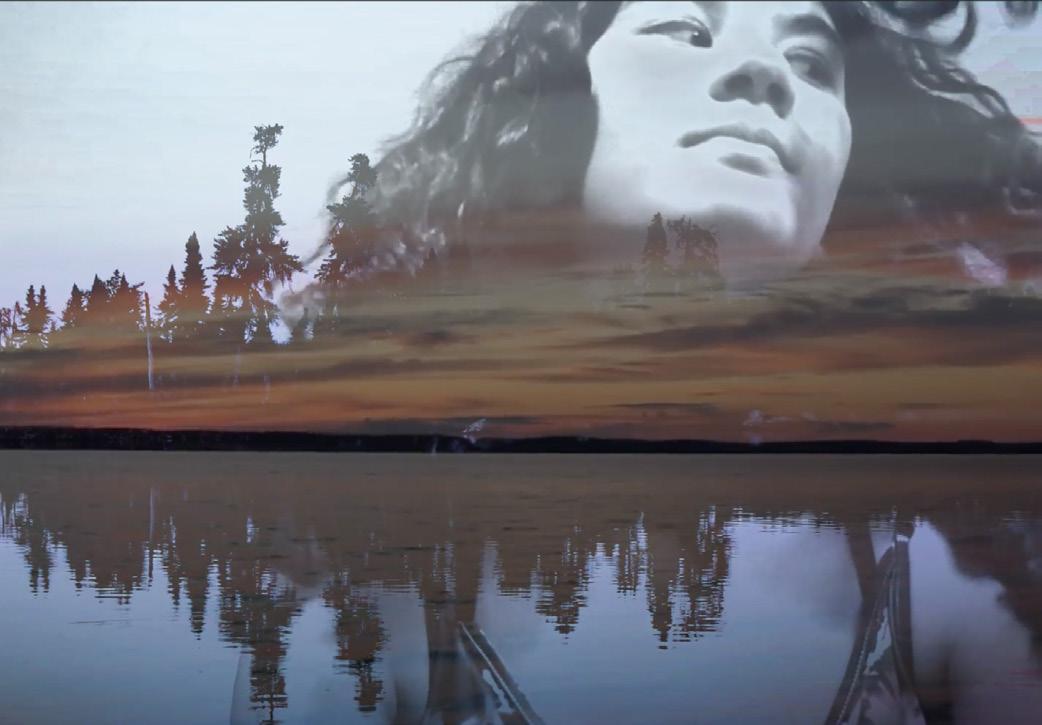
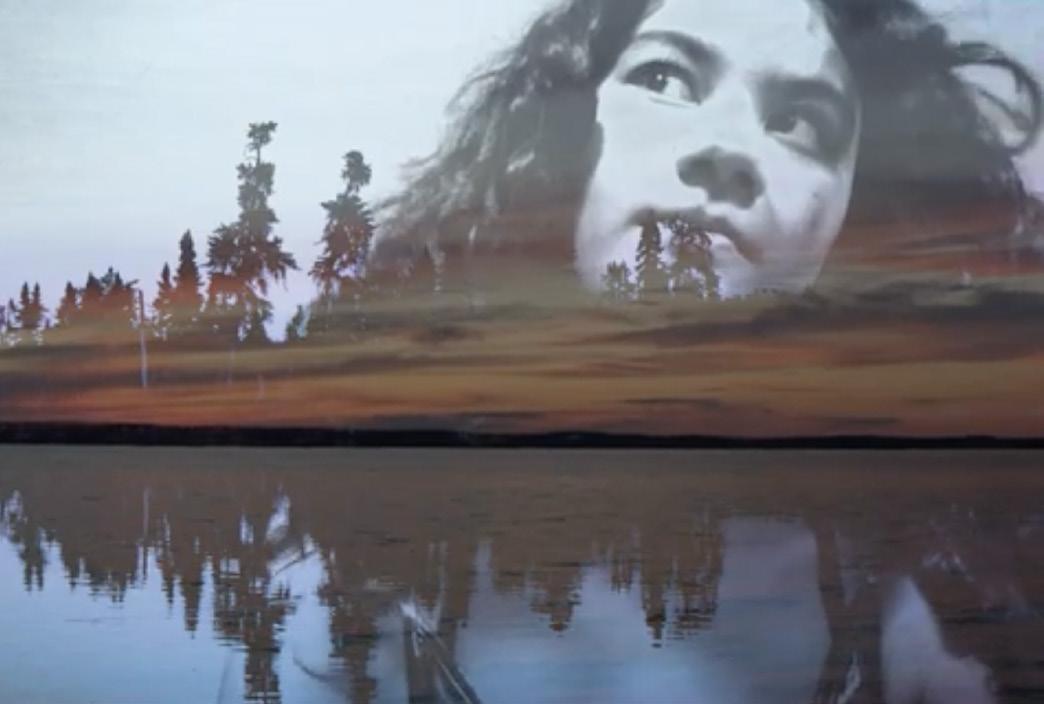
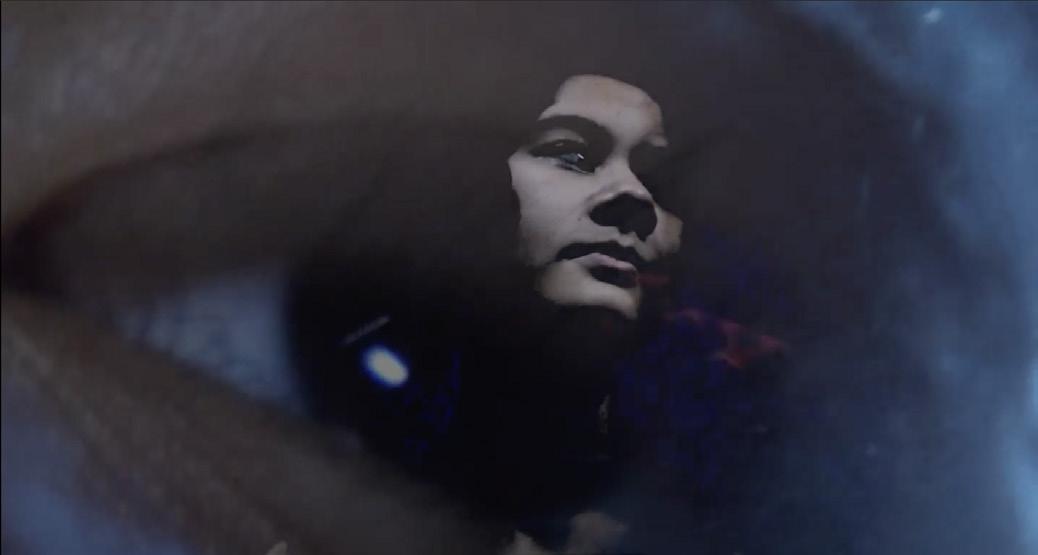
Shower once. Shower never. Shower once every three days and no more, no less, but it’s not routine so much as a coincidence. Shower hot. Shower warm. Shower with bar soap. Shower with liquid soap. Shower with body wash you stole from a country house. Shower with shampoo you got for free. Shower with shampoo spilling over your cupped hands. Shower with the foam emulsified to a thick lather. Shower and scrub your head hard enough to leave a mark, so nothing gets left behind. Shower and dig your nails into your scalp. Shower and scratch the dry skin off your legs. Shower and shampoo again, in case you missed a spot. Shower until your skin is raw and hot. Shower until your face is dry. Shower until you are clean enough to emerge, steam spilling out behind you as you walk through the door, the room hot and wet, the air stinging and cool, the mirrors clouded over, and walk through the old, dirty world like a newborn, hair slicked back, crying.













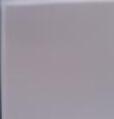










































Stygian blue. Fingers that sleep and buzz and clasp. Clouds that burn. Blue burning earth. Sixty-four spinning semiconductors with sixty-four broken wires.






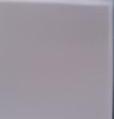


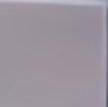

























A world which exists only in the mind, between wake and sleep; a world which exists only as long as it is not observed.
















 a story, Audrey Senaratna
a story, Audrey Senaratna
Boba is packaged into airtight bags, sealed, and stored at room temperature until its use. The raw pearls are fragile. They crumble to the touch, the chalky crumbs gathering at the bottom of each pack. The boba is initially naive, as the opening of its package is its first exposure to the real world. The small bulbs pour out of the bag, rejoicing their newfound freedom as they fearlessly slice through the air.
The definition of failure is the lack of success. That is terrifying. Failure in any sense of the word is inherently a bad thing, a misperformance, a loss, an inability to do something, a mistake. Letting yourself down is an underachievement, freezing up at your expectations creates the narrative that you just aren’t good enough. You could’ve done this, or that, anything but what you did, or in this case, didn’t do. Your brain becomes a simmering pot, developing your self-critiques. You’re a failure.
I think that’s the most I’ve cried in such a short amount of time. The salty streams poured down my face, stinging my lips. I hunched over in the back of the car, stuffy with the cries escaping me, bracing myself for the impact of the final goodbye. Those watered-down words, saturated with a sense of incompleteness and the desperation for it to all be unreal. As our fingers slipped by, I bit my lip to trap in the sobs that were pounding on the door that was my mouth, and the briny taste of blood warmed my tongue.
First, boba must be boiled. The water must already be boiling before the boba is poured in, otherwise, they fall apart into chalky clumps of tapioca. The pearls must be scorched in the bubbling water, burning and scalding in the 212 degree liquid. It is crucial that the boba is regularly stirred during this step of the process, the pieces must not clump together, but be mixed around, constantly needing to mingle and adjust to a new space in the scalding environment.
Letting down the people around you comes with failure. Other people’s image of you is altered. You’re less reliable. You’re flaky. You’re unproductive. In the heat of the moment, you got cold feet; the boiling water burned you, so you bathed in cold tap water trying to soothe your raw skin. Nothing you tried to do worked. It was all for nothing. You may learn a lesson from your mistakes, but you won’t ever be better than your worst defeat. The bitterness rises to your throat, it spews out in steaming spurts of seething defeat. The confectionary promise of victory that you came fingertips from was too much for your stomach to keep down.
Then, the boba must sit. It must be marinated in the previously-boiling water and 10oz of brown sugar that is mixed into the pot. After the final stir, the pearls are left untouched in a covered pot, encapsulated in the steamy saccharine solution, soaking up their syrupy surroundings, and forging their way to their desired saturation.
I walked through the airport doors, into the bliss that was air conditioning, and finally allowed myself to turn around. Ladies were being helped out of their cars and kids were tugging on the clothes dangling from their parent’s figures, the palm trees were swaying in the humid Sri Lanka air, but the black SUV had already gone. I didn’t get that movie moment where the main characters get one, last bittersweet look. I had missed it.
I knew that the love had to end before it started. I knew that it wasn’t going to work. I only had six more months before I was going to go back to Minnesota, but that didn’t stop me from jumping head-first into the depths of a love that far surpassed the bounds of my knowledge. I tried to do long-distance, too. But the physical distance overcame the emotional closeness, our love languages being neglected and then numbed. The work to maintain the honeymoon became too extensive for us, overheating our bodies and testing our endurance; a test at which we had failed.
Finally, the boba is washed and served. The cloud of sugary steam lets off with the removal of its lid, infiltrating the air with its stench. The now-chewy pearls are poured into a strainer, gravity stripping away the sweet marination in which the tapioca sat. The bare boba is then chilled: rinsed with cold water until all of the steam fades away. The new batch is ultimately stored behind the boba shop’s counters in a new syrupy solution, one with less sugar than the first, but sweet nonetheless.
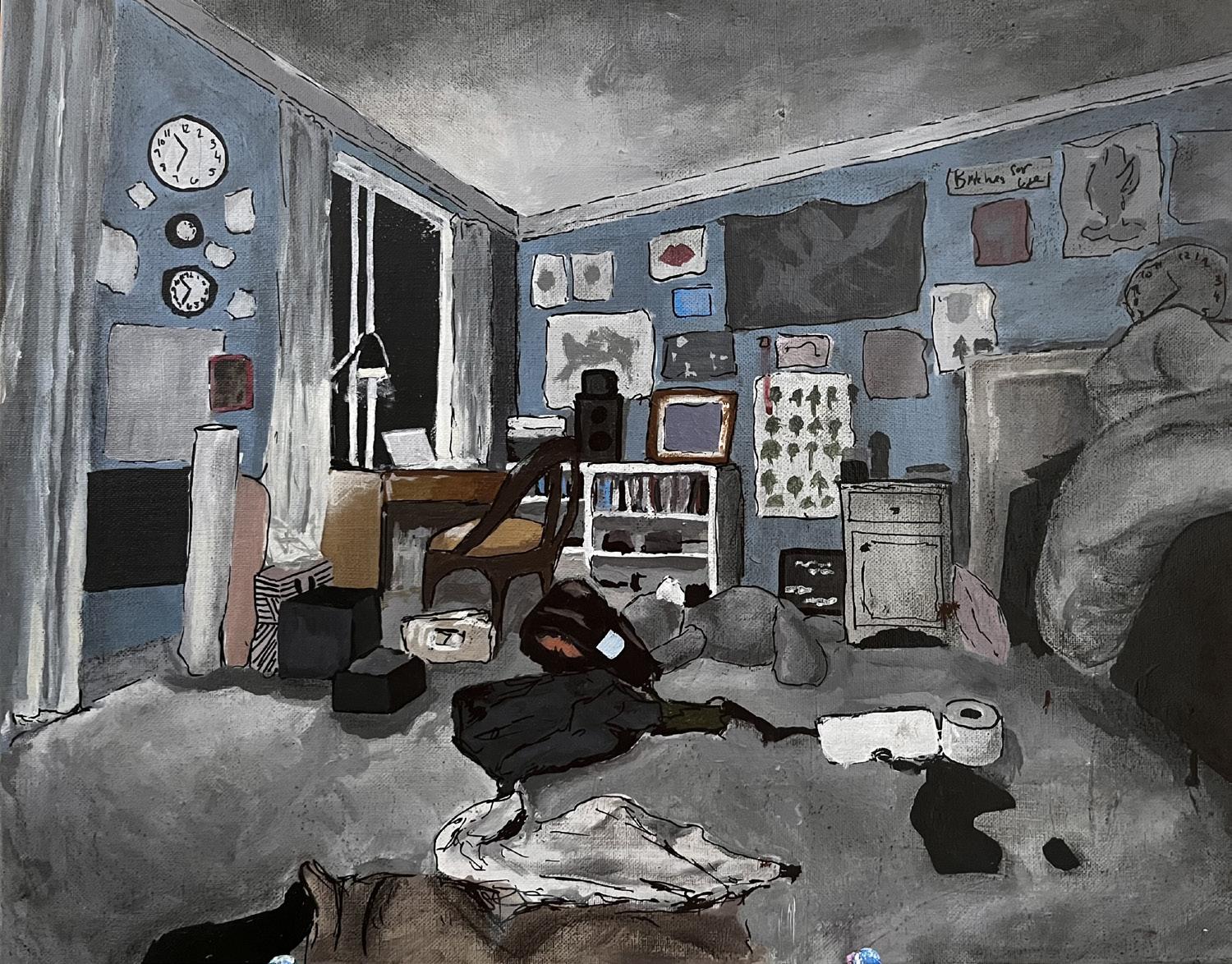
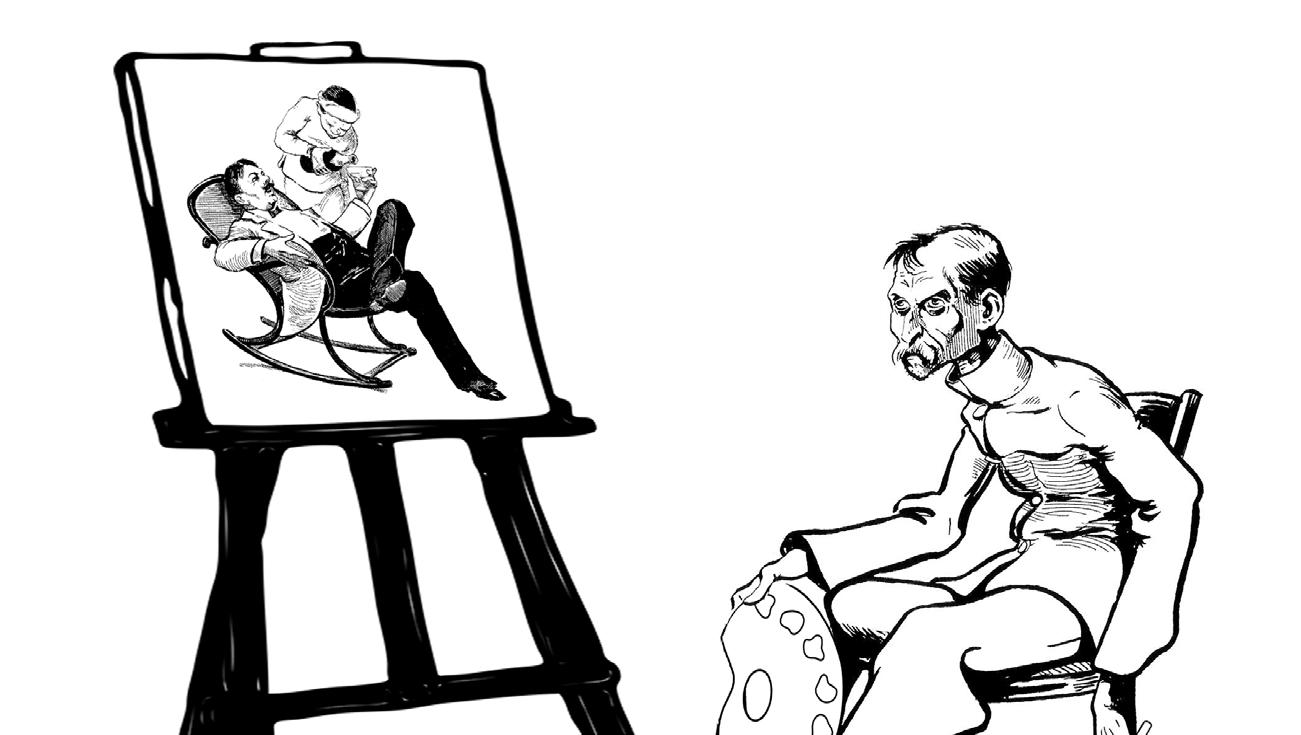
I stand upon a peak and graze, the world underneath me, set ablaze. The sun, so bright, so lovingly torrid, welcoming the arrival of a friend, a patron. The flickering of flames, the pathways of gold leading one to ponder, which way to go?
It must not be the foolishness of a single man, with the flick of a hand, lighting up the road. It must not be the miners, gasping for air, from the smoke, the fire, and the wealth they suppose. I watch a boy, strolling down the streets, edges burnt, rubble under his feet.
He watches the inferno without lifting his head, eyes locked into a screen, cold and dead. When I ask him what he seeks, he responds with “looking for gold.”

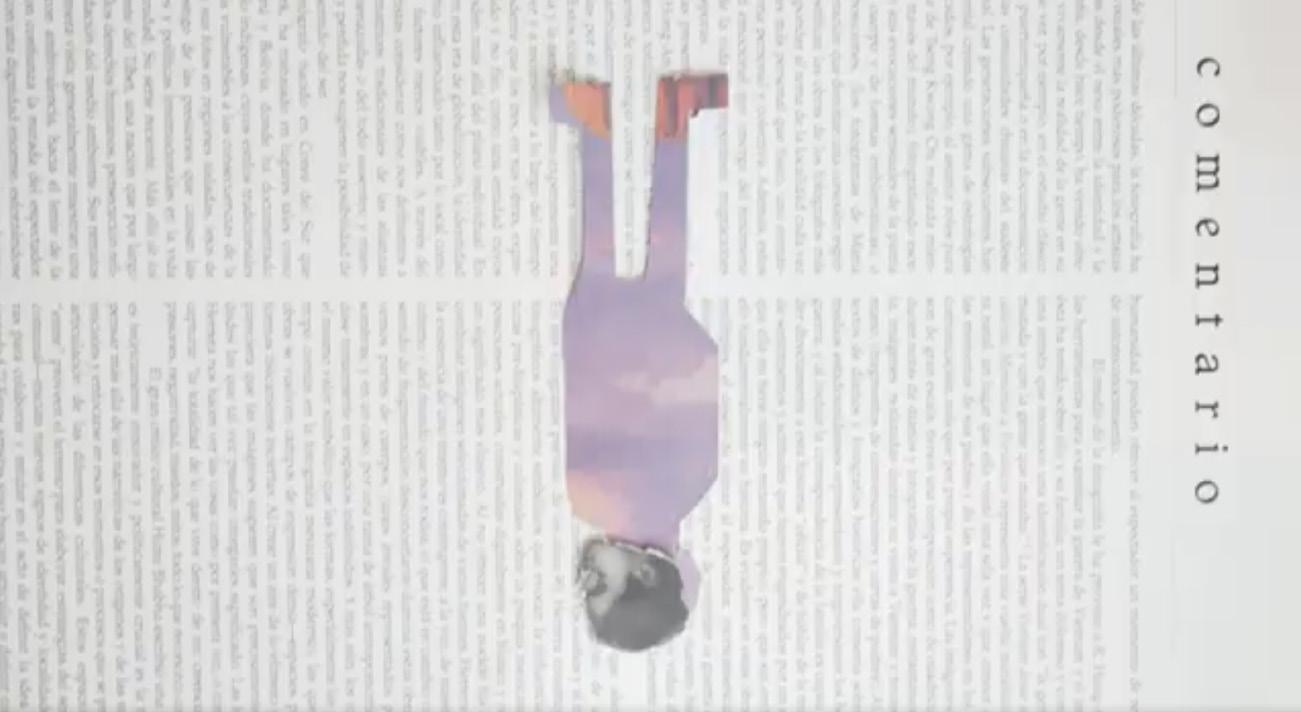
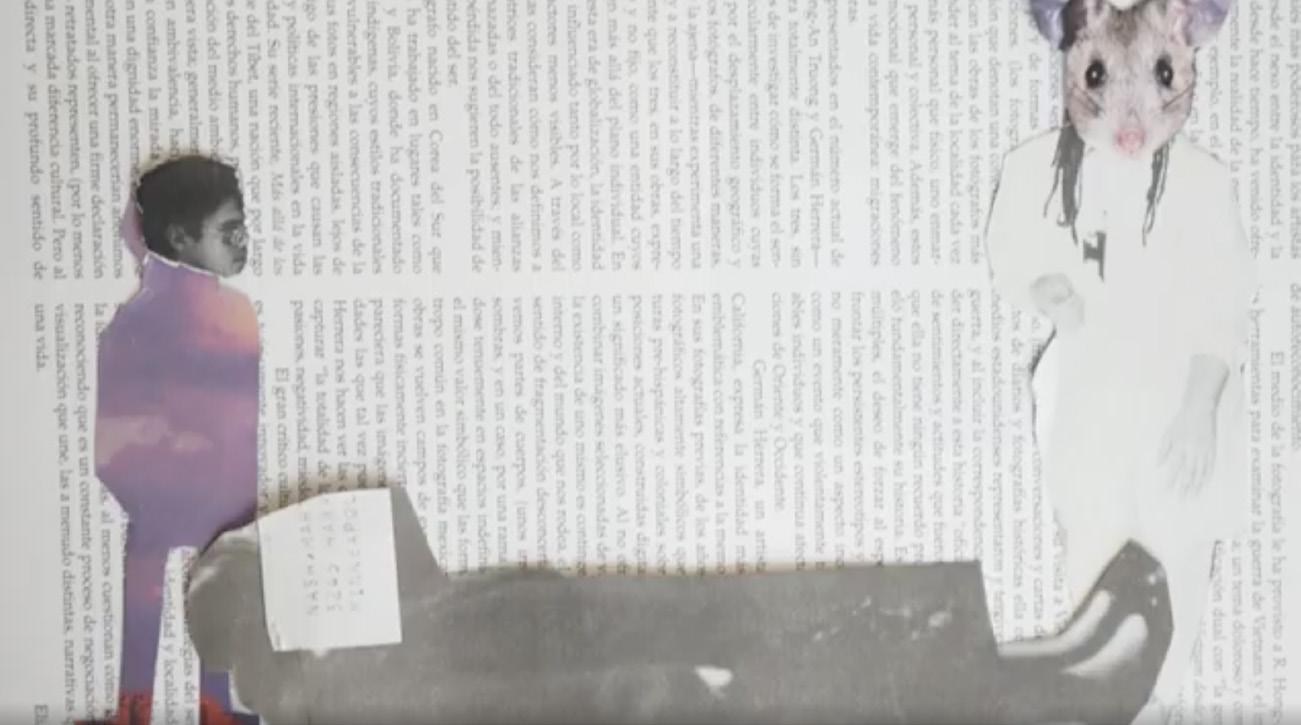

Examining the Relationship between the Indigenous people of Peru and the Peruvian Government
Peeking through the lines of Colonialism
a personae poem, Henry Batson
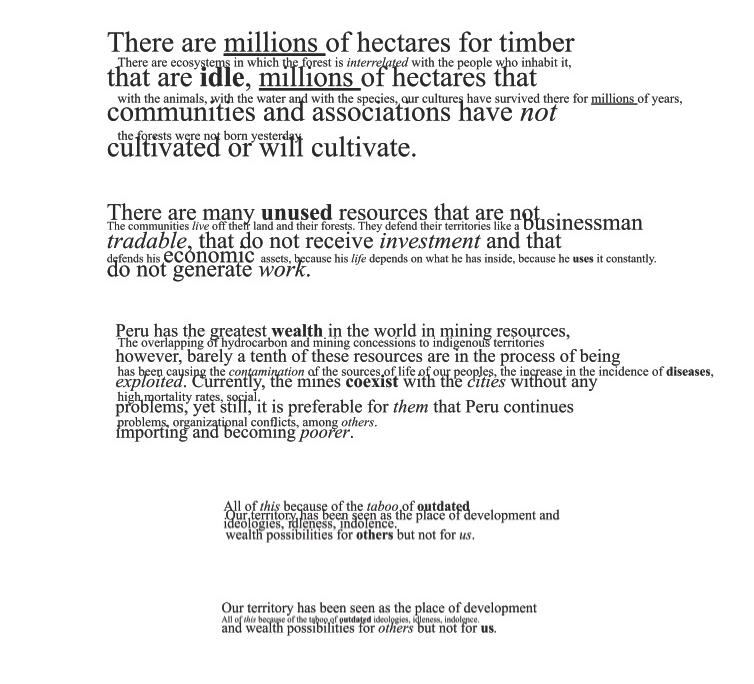

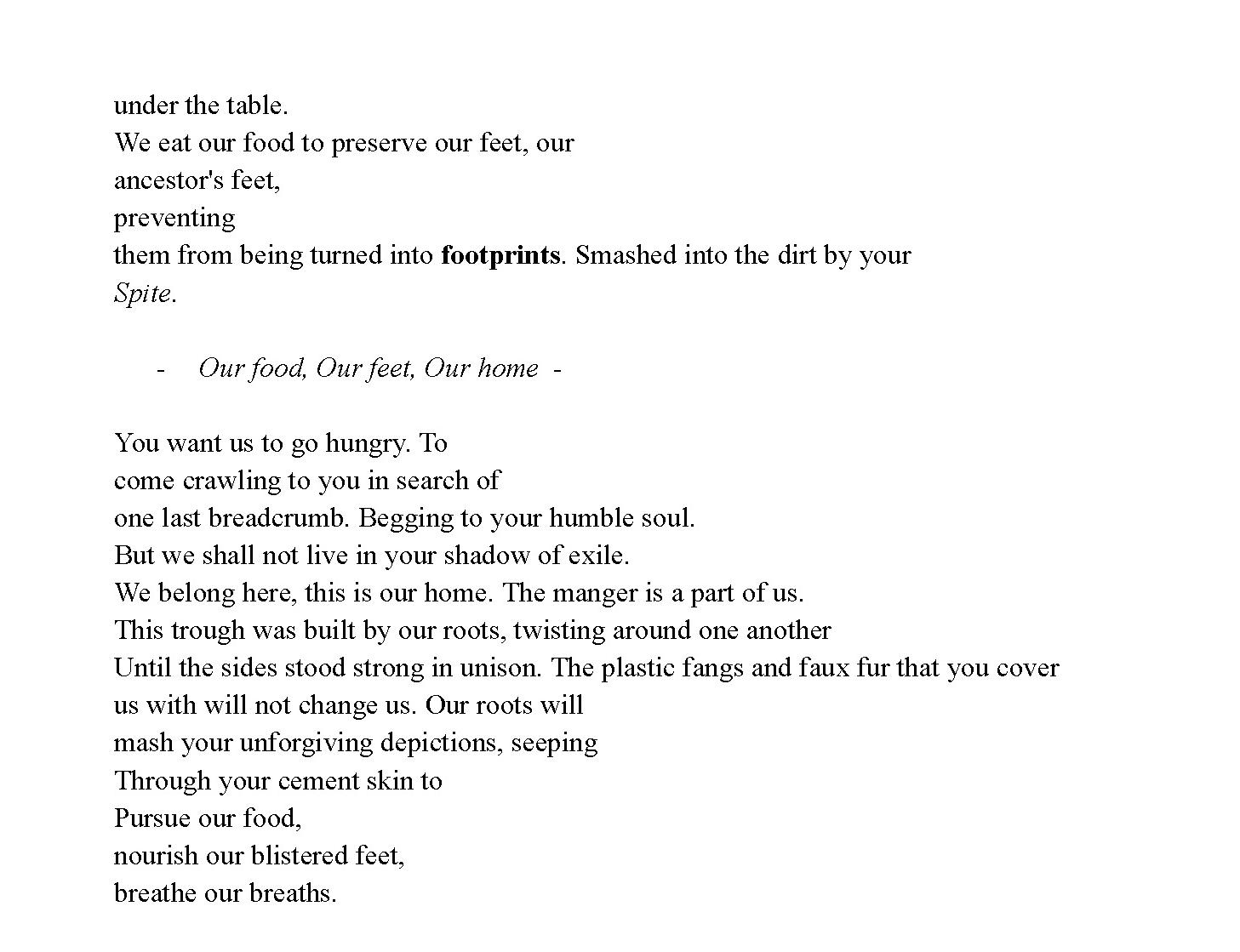
poem, Ali Manzoor
Trust
A word that is used a lot
But an action that is forgot
To trust or distrust
Is a question
Distrusting seems to be the right thing to do
But at the same time distrusting can be a struggle
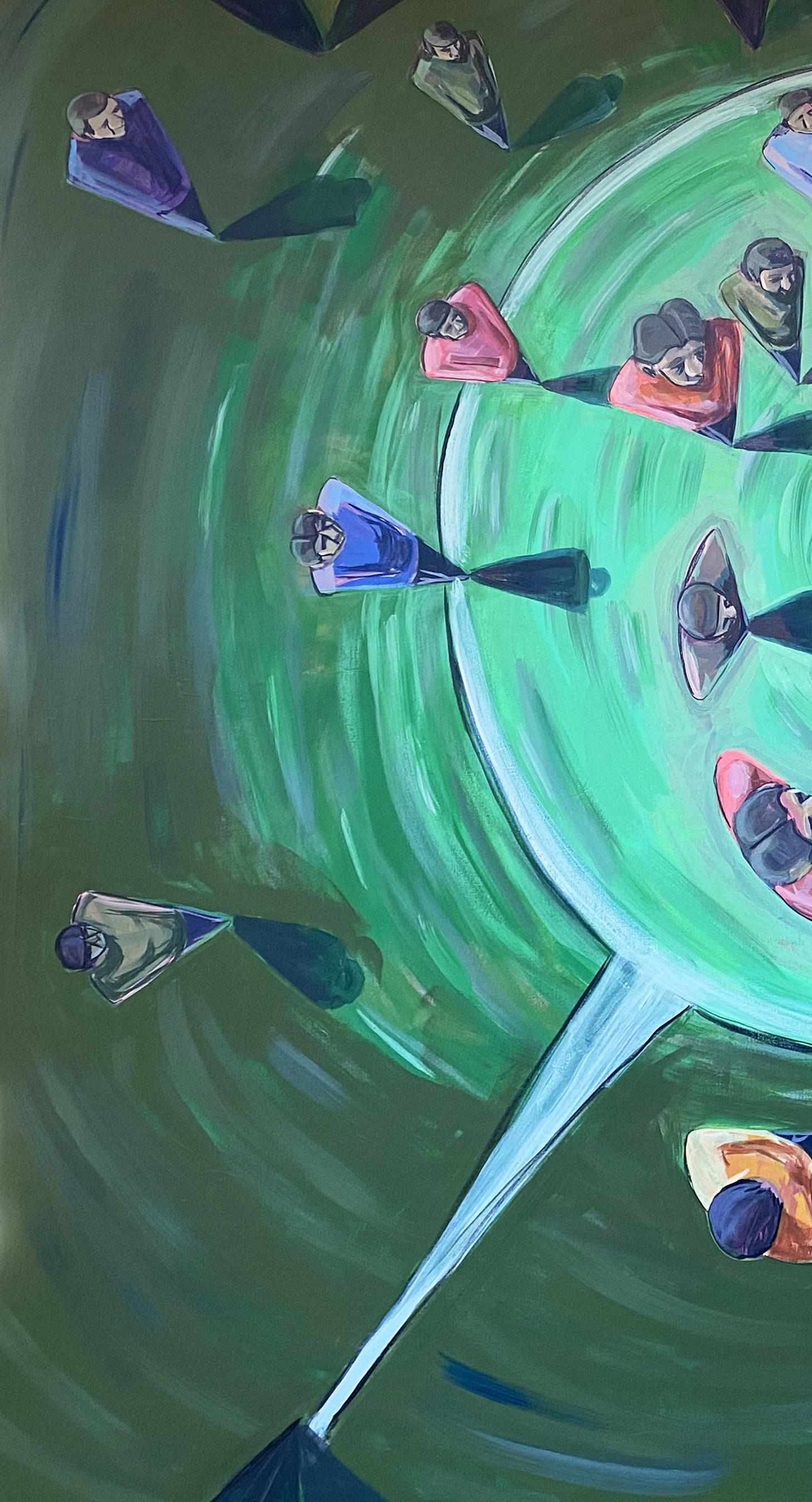
Because even if you know
It is hard
The question is easier than the answer
Because the answer is what you may not find keen
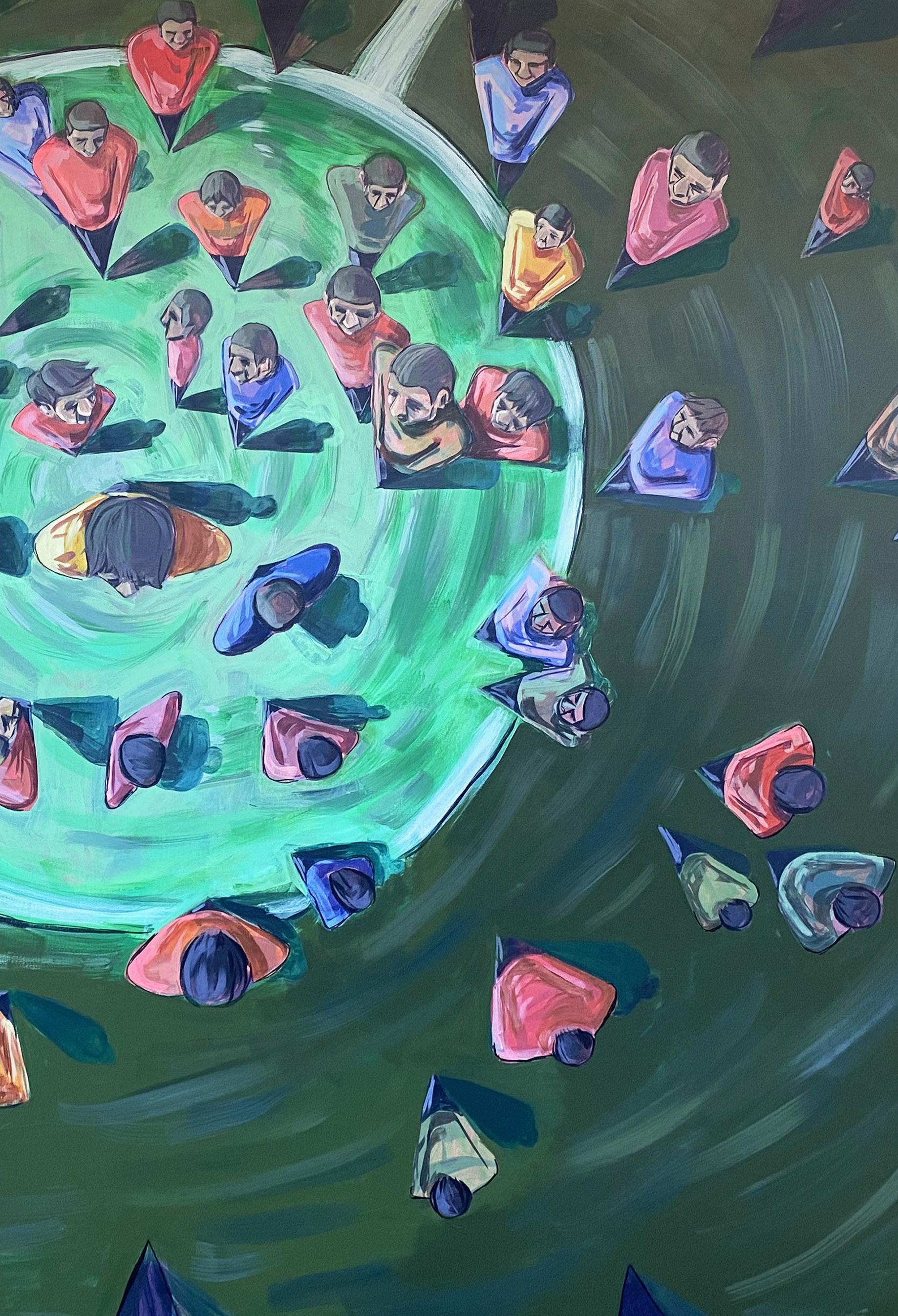 FOOS! painting (6.5’ x 4.5’), Wyatt Tait
FOOS! painting (6.5’ x 4.5’), Wyatt Tait

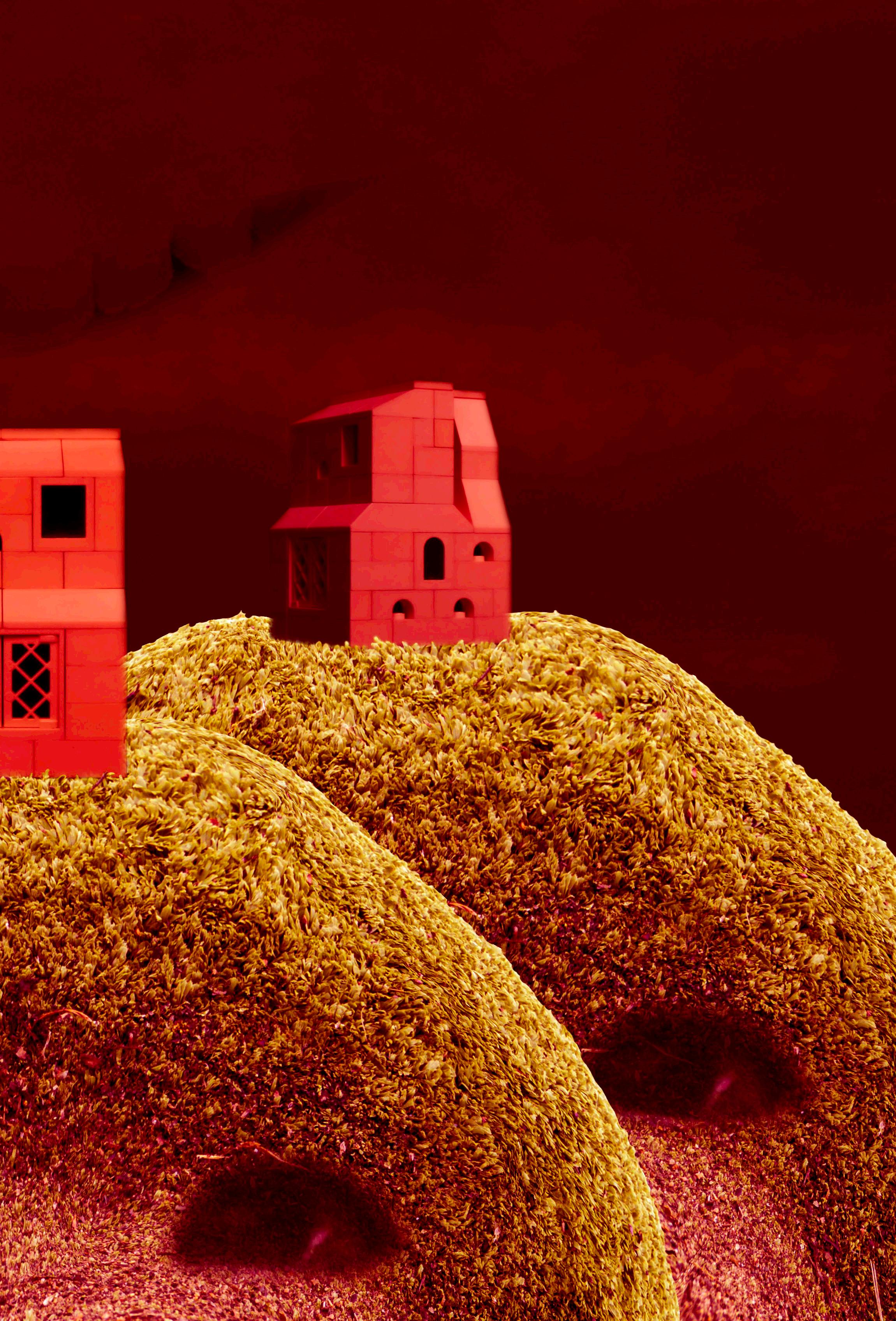

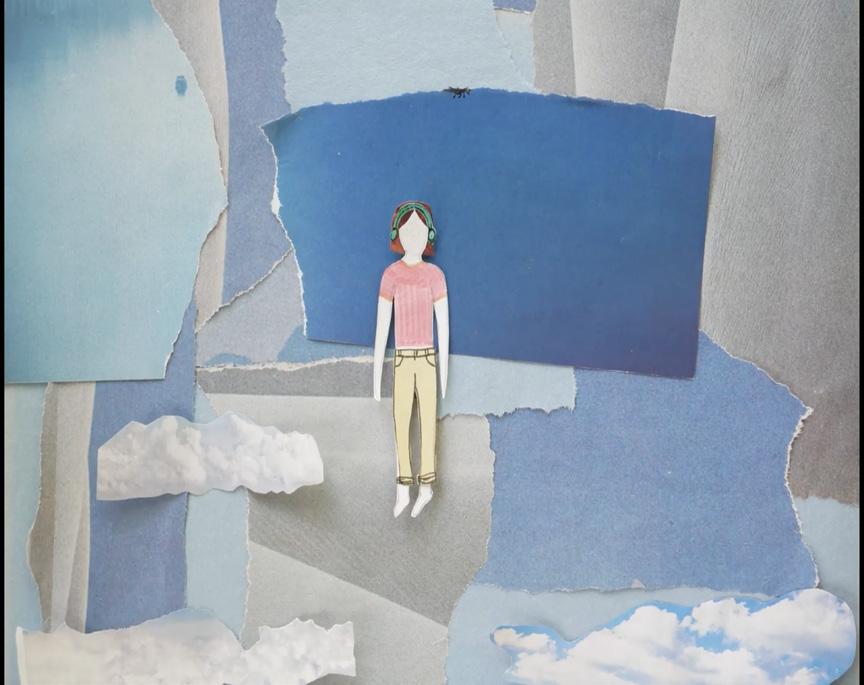
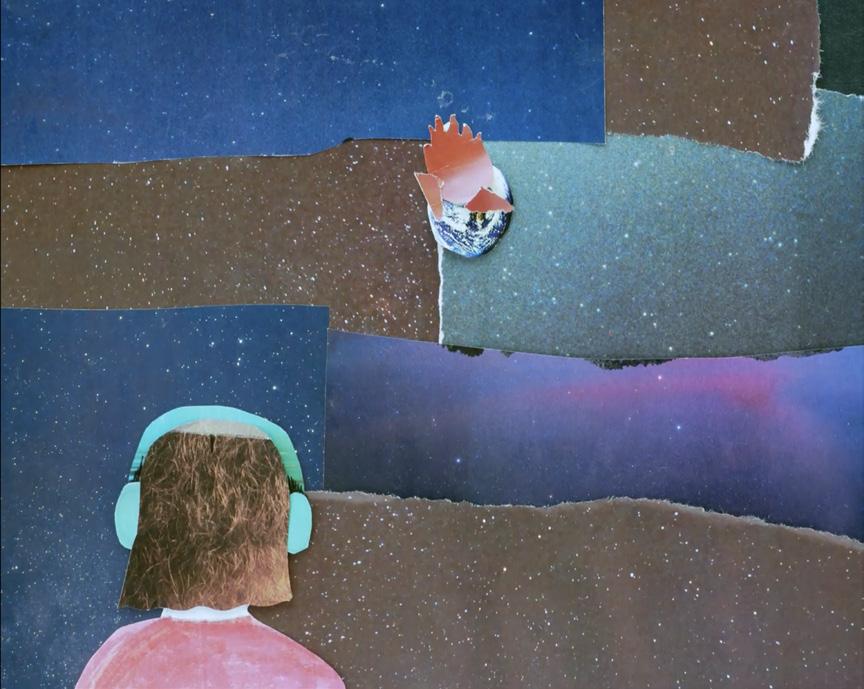
Sitting on my mother's bed
All together
But so far apart
My mother is attentive as a deer
My father shocked and clueless now But as smart as a raven
We listen to the enthusiastic women on the phone
As she lists solutions and problems off
Like a spelling contest
It’s hard seeing pride break
But he didn’t blink back his tears
He let them fall
Onto my mother's comforter
Once
And for all
a poem, Ivy Raya
My love,
How long I have been gone
I have missed you so, and yet you were never enough for me
I gave all I had to you, my culture, my skin, my food, the clothes off my back
In return, you adorned me with expectations and needs
You wanted more.
You took and took and I gave because you said that was what I wanted
But now I am slowly straining free from your grasp
From the necklace you placed gently around my neck, from the chair you have been pushing away from me
I find the time where I am able to breathe
To escape for a minute and shake the fog that you have shot into my mind
My
love, How I will miss you, But I must say goodbye
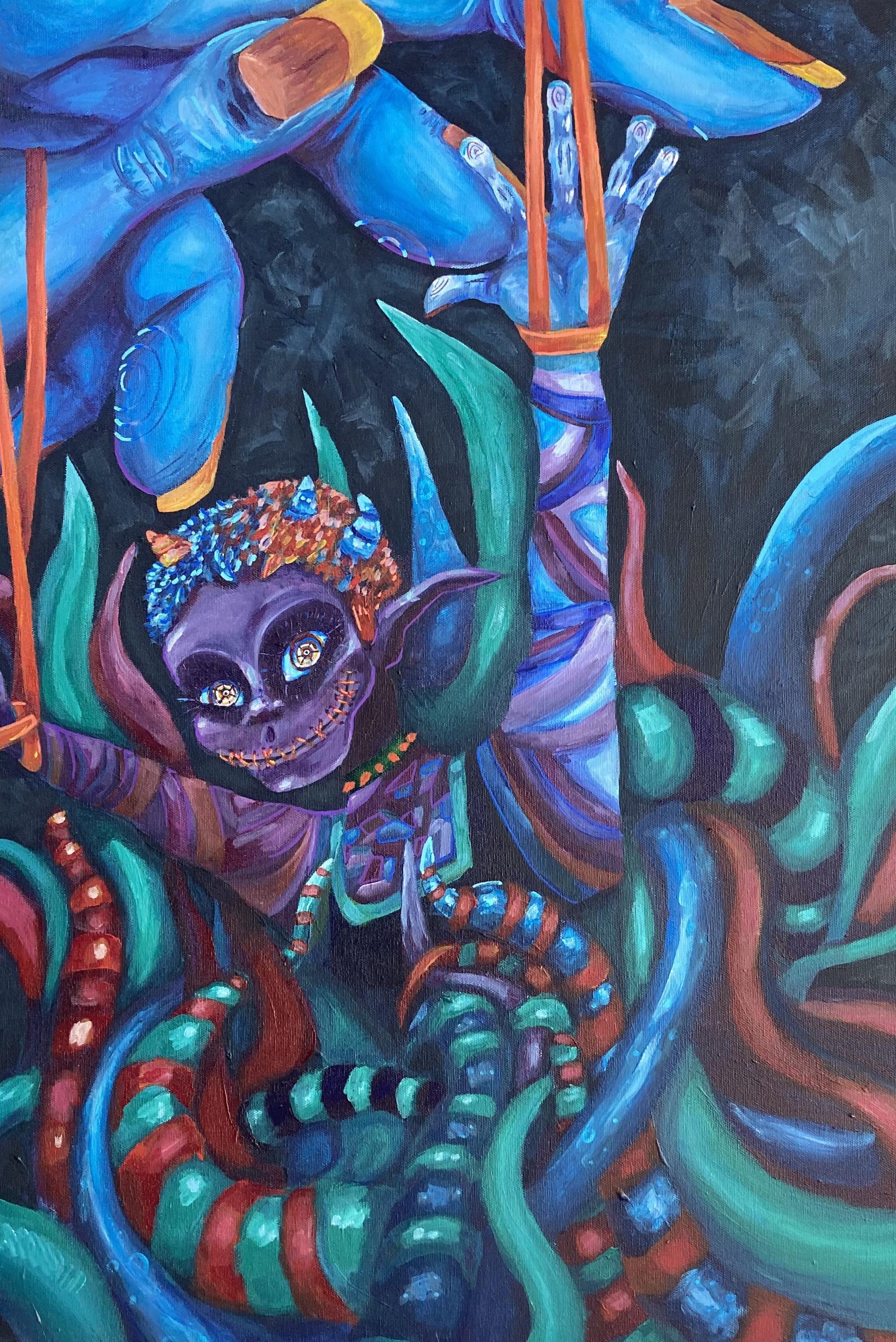
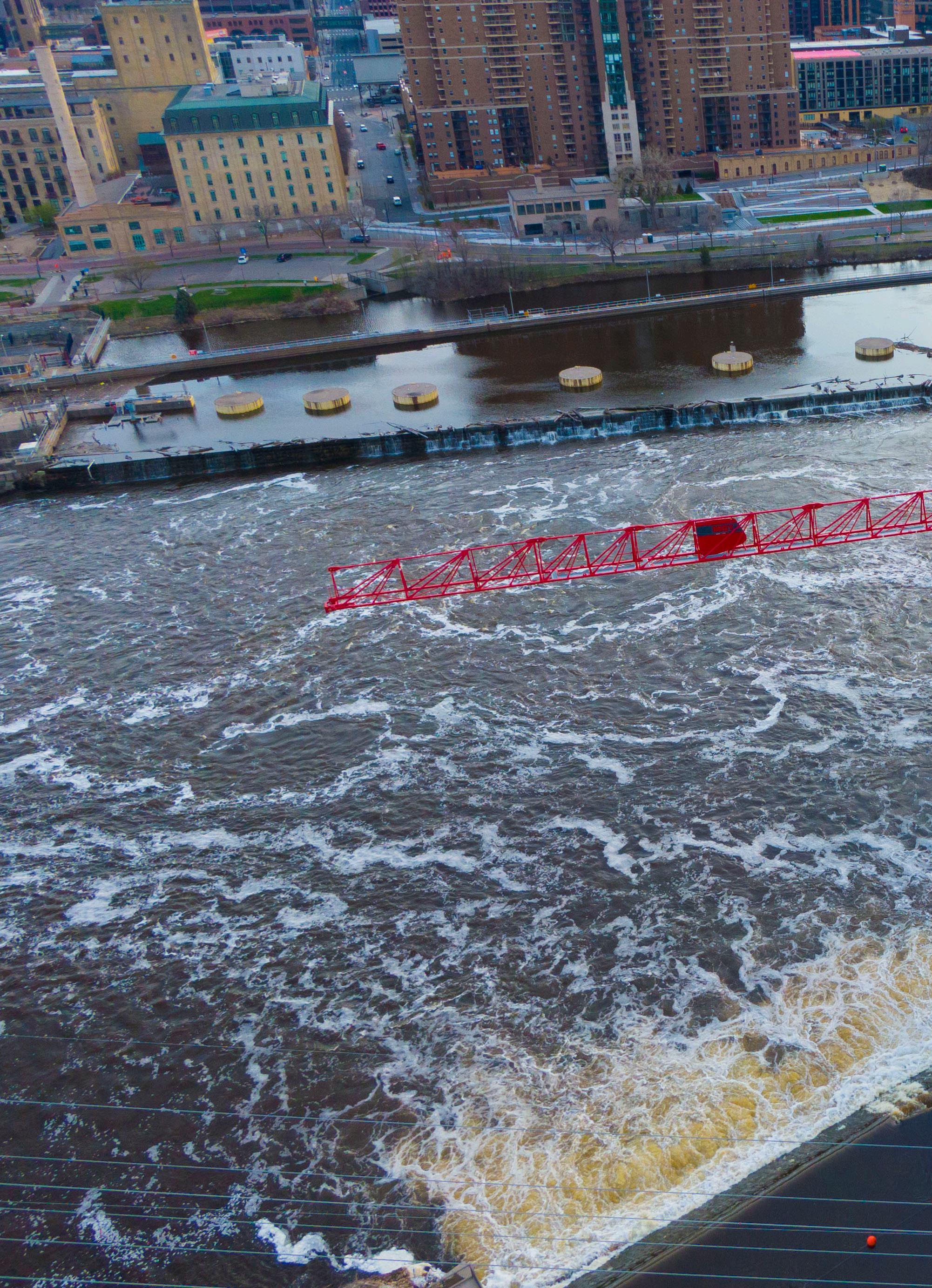 UNDER
photography (13” x 9”), Thomas Kovarik
UNDER
photography (13” x 9”), Thomas Kovarik

The poem “Bedtime” focuses on a girl in college going to bed after a long day of school and work. She reminisces on a stuffed bear she had in childhood, and the comfort it gave her when her parents would fight (the monster). The bear symbolizes both comfort and innocence, as she deals with this trauma and flashbacks of her parents fighting when she was younger. Some of the metaphors are the door to her dream world, the empty boat showing her feeling alone, and the rugged look on her bear at the end showing how this stuffed and stitched friend fought with her to bring her a sense of peace and comfort.
a poem, Cosette
SwitzerA late night. The monster’s shadow reveals a pile of clothes on the desk chair. The growls from under the bed frame have quieted down.
I haven’t heard from them for a while.
I climb under my blanket of security, My vision blurs as I fall into a different realm. I see my old friend, Stuffed and stitched just for my comfort. His paw waves at me, And his fur is freshly combed and he is wearing a bow tie. I enjoy his sewn smile. His eyes are two buttons, Carefully put into place.
G R O W L S. They’re back. A rugged hand grasps my ankle Scream and shouts for help as this monster is being fought inside my realm of dreams.
I rock back and forth in this empty boat waiting for the war to be over.
My body grasps for oxygen as the door to this realm closes. I am awake again. My mind feels—F r e e. At last. My stuffed bear is in the corner of the room, Glaring at me with those button eyes and sewn smile. As I open the door to my realm of dreams once again,
Something brushes my arm.
I look over and gaze upon my childhood friend, And his sewn smile looks droopy. The cut on his left paw drips slowly, and his fur looks rugged, Strings falling out here and there.
My stuffed bear jumps into my arms. “You are safe now.”



 a poem, Kai Wetternach
a poem, Kai Wetternach
Possible sickness
Painless
Not pokey painless

Not hurt painless
Easy Simple
Painless
Wet wiped my arm
Told me no harm
To save me from disease
Keep me at ease
The doctors count down from three
And the needle stabbled me
My world fell apart
Just like my arm

The needle was like a bee
And I started crying like I was three
Trust broken like my heart


















Eyes and words play tricks on us. But the emotions they make us feel are real.

Reality is grounded in what exists in fact and the physical world

Fantasy is fed by our imagination and plays by its own rules
How do we ascertain what means more? What will we take with us?




























Editors in Chief: Hadley Dobish, Eliza Farley
Ladder Development: Halle Cowgill, Hadley Dobish, Eliza Farley, Roman Farley, Poppy Ploen
Graphic Design Lead: Echo Dayton
Page Design: Sophia Bietz, Echo Dayton, Hadley Dobish, Eliza Farley, Poppy Ploen
Club Leaders: Eliza Farley, Poppy Ploen
Club Members: Annie Bai, Halle Cowgill, Hadley Dobish, Eliza Farley, Roman Farley, Johanna Pierach, Poppy Ploen, Liza Thomas
Kathryn Campbell, CJE Director of Publications Andrew Inchiosa Club Advisorallusion/illusion 2023 was printed by Ideal Printers in Saint Paul, MN with a combination of lithographic and digital technology in four color process. The cover stock is Royal Sundance Ultra White in felt (100#) and inside pages are Cougar Smooth Text (100#). The book is permabound.
Body text, folios, and artistic credits were designed using the Study and Vox font families. Titles, literary credits, and pull quotes were designed using the Study, Purista, and Vox font families.
All graphic design was completed in Adobe CC on Lenovo ThinkPad L13 Yoga laptops or classroom iMac desktops. Files were submitted via Google Suite.
250 copies of the magazine were printed, with a digital release published on ISSUU. Magazines are distributed free of charge to the 9-12 student body with the support of the publications budget for the magazine. Additional copies of Iris: Art + Lit can be purchased for $18, subject to availability.
The sheer volume of exceptional visual work made the selection process both challenging and rewarding. I was particularly drawn to pieces that demonstrated a strong narrative element, as they were a fitting tribute to the spirit of a literary arts magazine. These works showcased artistic skill and captured the essence of storytelling. It was evident that many of the submissions focused on themes of identity, reflecting the personal journeys and self-discovery that the artists have been experiencing during their high school years. I was deeply moved by the honest and poignant expressions of self that the artists shared.
Some standout pieces displayed impressive technical proficiency and a keen eye for detail, while others showcased innovative approaches to composition and color. But what made each of these works truly exceptional was their ability to tell a story, to immerse the viewer in the artist’s world, and to evoke an emotional response.
I congratulate all the artists who participated in this year’s competition. Your passion, dedication, and creativity are evident in your work, and it has been a privilege to witness your artistic growth.
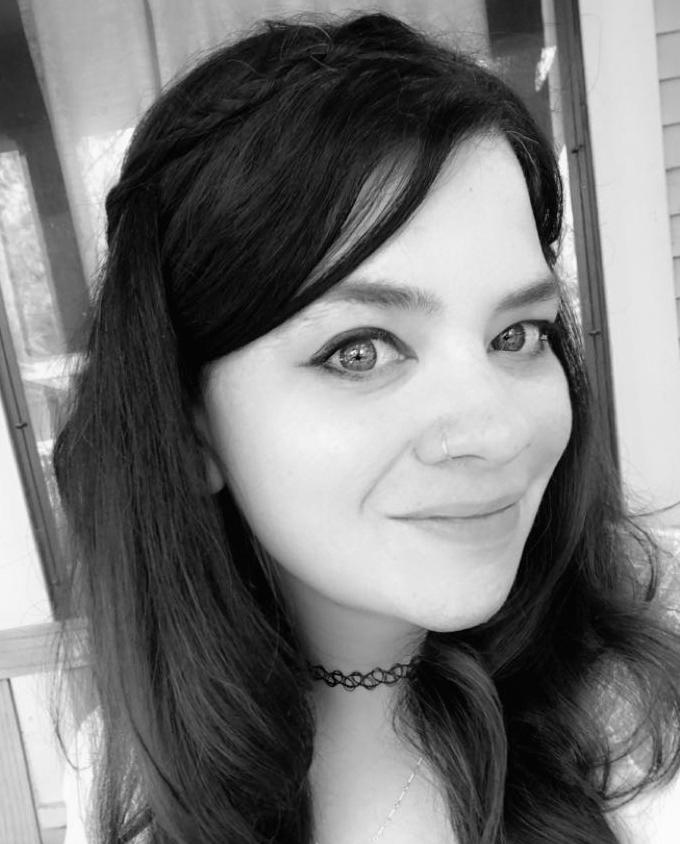
Andrea Bagdon is an artist and educator rooted in the Twin Cities. Her hybridized use of experimental video, painting, and mixed media investigates aesthetic theory and gender perspectives while fostering interdisciplinary artistic conversations. To learn more about Andrea’s accolades and work, visit her website at www.mercurialstudio.com.
Staff members of the St. Paul Academy and Summit School yearbook, Ibid, as well as select Iris: Art + Lit club members, read through and judged submitted literature. Works selected for publication demonstrated exceptional narrative ability and imagery.
The mission of Iris: Art + Lit is to celebrate the diverse creative voices in our community and encourage engagement with the arts. Poetry, prose, and artwork are submitted via event participation, teacher recommendation of classroom work, and individual student submission. Professional artists and authors jury the work. The art juror ranks the top 20 works in each medium: drawing and painting, ceramics, and photography. Videography recommendations are made by the instructor. Iris staff remove names from the literature submissions and the judge ranks these works on aw 5-star scale.
Iris: Art + Lit is an open forum for student expression. The ideas presented in the work, as well as the copyright of each piece, belong to the author or artist who created it. However, the magazine staff reserves the right to deny publication to submissions. The staff may edit pieces for length or typographical errors, with the goal of maintaining the integrity of the original work.
Columbia Scholastic Press Association - Gold Crown Award (2018, 2020, 2021), Silver Crown Award (2019, 2022)
National Scholastic Press Association - Pacemaker (2019, 2020, 2022) Finalist (2021), All-American (2017-present)
JEA/NSPA Convention Best of Show - Best of Show (Fall 2019) - 2nd Place; Best of Show (Spring 2020) - 1st Place; Best of Show (Spring 2021) - 2nd Place; Best of Show (Fall 2021) - 4th Place; Best of Show (Fall 2022) - 7th Place.
NCTE: REALM - First Class (2018, 2020-22), Superior (2019)
MHSPA - 1st Place - Best of Show (2017-present)
JEM - All State Gold (2017-present)
iris © Iris: Art + Lit 2023
ai 2023
cover image generated at OpenArt AI